
7-9 November
at the CDI USP Auditorium.
CDI USP Auditorium
Av. Prof. Lúcio Martins Rodrigues, 310 - Butantã, São Paulo

Prof. Dr. Vahan Agopyan – State Secretariat of Science, Tecnology & Innovation
Prof. Dr. Susana Inés Córdoba de Torresi – Provost for Research at USP
Mr. Daniel Maia Vieira – Technical Director National Agency for Petroleum, Natural Gas and Biofuels (ANP)
Dr. Carlos Américo Pacheco – Chief Executive Officer Technical and Administrative, FAPESP
Dr. Olivier Wambersie – General Manager R&D and Innovation, Shell
Prof. Julio Meneghini – RCGI Scientific Director, University of São Paulo
Prof. Dr. Karen Louise Mascarenhas – ETRI 2023 Chair Conference
Brazil’s Role in the Global Energy TransitionOpening Ceremony
Chair: MsC. Camila Farias (Shell Brasil)
Dr. Olivier Wambersie – General Manager R&D and Innovation, Shell
Prof. Dr. Kazuo Nishimura – OTIC Executive & Scientific Director
Panel 1: Energy Transition to Combat Climate Change: What Policies Are Necessary?
Chair: Prof. Dr. Patricia Iglesias (SGA-USP)
Prof. Dr. Vahan Agopyan (State Secretariat of Science, Technology and Innovation)
Dr. Marisa Maia Barros (Vice secretaria)
Dr. Angela Oliveira da Costa (EPE)
Dr. Plinio Nastari (Datagro)
Dr. Fabio Feldman (Fabio Feldman Consultores)
Brazilian NDCs: the way forward
Chair: Prof. Dr. Suani T. Coelho (IEE / RCGI – USP)
Ambassador André Correa do Lago – former Ambassador of Brazil to Japan and India and currently Secretary of Climate, Energy and Environment of Itamaraty
Chair: Prof. Dr. Paulo Artaxo (Physics Institute – USP)
Prof. Dr. Carlos Nobre – (Institute of Advanced Studies – USP)
Panel 2 – How Can Technology & Research & Innovation Support Energy Transition?
Chair: Prof. Dr. Julio Meneghini
Prof. Dr. Anthony Kucernak (Imperial College London, UK)
Prof. Dr. Andre Faaij (Ultrech University, Netherlands)
Prof. Dr. Chinnakinda S. Gopinath (NCL, India)
Prof. Dr. Ana Flavia Nogueira (UNICAMP – CINE, Brazil)
Prof. Dr. Paulo Artaxo (USP, Brazil)
Mr. Alexandre Breda (Shell Brasil)
0711 – NBS1 (TV1)
NBS Carlos Cerri – Mauricio Cherubin
0711 – CCUS2 (TV2)
CCUS Colombo Tassinari – Renato Gonçalves
0711 – PS8 (TV3)
PS Maurício Salles – Renato Monaro
0711 – GHG4 (TV4)
GHG Emilio Silva – Luis Fernando Sá
Welcome and notices
Panel 3 – Pathways to achieve Net Zero
Chair: Prof. Dr. Carlos Frederico de Oliveira Graeff, FAPESP
Prof. Dr. Carlos Eduardo Cerri (NBS – Nature Based Solution)
Prof. Dr. Pedro Vidinha (CCU – Carbon Capture and Utilization)
Prof. Dr. Marcos Buckeridge (BECCS – Bioenergy with Carbon Capture and Storage)
Prof. Dr. Emilio Nelli Silva (GHG – Greenhouse Gas Technologies)
Prof. Dr. Edmilson Moutinho dos Santos (Advocacy)
Prof. Dr. Maurício Salles (Innovation Power Systems)
0811 – SRS5 (TV1)
SRS Edilmilson M. dos Santos – Sigmar Malvezzi
0811 – BECCUS3 (TV2)
BECCUS André Dourado – Marcos Buckeridge
0811 – CCUS7 (TV3)
CCUS Lucy Comes Sant Anna – Renato Gonçalves
0811 – PS10 (TV4)
PS Maurício Salles – Renato Monaro
0811 – EnvSG9 (TV1)
Suani Coelho – Edmilson M dos Santos
0811 – NBS15 (TV2)
NBS Carlos Cerri – Maurício Cherubin
0811 – CCUS11 (TV3)
Cristina Fernanda Alves Rodrigues – Renato Gonçalves
0811 – PS16 (TV4)
Maurício Salles – Renato Monaro
Panel 4 – Carbon Credits and Economics as key enablers for the energy transition
Chair: Prof. Dr. Virginia Parente
Prof. Dr. Ariaster Baumgrat Chimeli (FEA – USP)
Prof. Dr. Gesner Oliveira (GO Associados / FGV)
Dr. Viviane Romeiro (CEBDS)
Dr. Agnes Maria de Aragão da Costa (ANEEL)
Prof. Dr. José Roberto Moreira (IEE – USP)
0811 – NBS17 (TV1)
Carlos Cerri – Maurício Cherubin
0811 – PS22 (TV2)
Maurício Salles – Renato Monaro
0811 – CCUS14 (TV3)
Cristina Fernanda Alves Rodrigues – Pedro Vidinha
0811 – GHG12 (TV4)
Renato Picelli – Fernando Sacomano
Panel 5 – What is the role of the star-ups in the Energy Transition?
Chair: Dr. Isabela Morbach (CCS Brasil)
Dr. Alexsandro Kirch (Multiscale)
Dr. Dagoberto Silva (Moftech)
Dr. Deise Nogueira (Quanticum)
Dr. Maitê Lippel Gothe (Carbonic)
Prof. Dr. Marcelo Rodrigues (Krilltech)
Welcome and notices
Panel 6 – The Role of Women in Energy Transition aiming to achieve the Sustainable Development Goals
Chair: Prof. Dr. Karen L. Mascarenhas (RCGI – USP)
MsC. Camila Farias (Shell)
Dr. Elbia Gannoun (ABeeolica)
Prof. Dr. Suani T. Coelho (RCGI – IEE – USP / GBio)
Prof. Dr. Telma Teixeira Franco (UNICAMP)
Prof. Dr. Virginia Parente (IEE – USP)
0911 – ETE6 (TV1)
Virginia Parente – Suani Coelho
0911 – CCUS18 (TV2)
Lucy Gomes Sant Anna – Pedro Vidinha
0911 – SRS19 (TV3)
Edmilson M. dos Santos – Karen Mascarenhas
0911 – GHG20 (TV4)
Renato Picelli – Guenther Krieger Filho
Panel 7 – The evolution of the SDGs in Brazil
Chair: Prof. Dr. Suani T. Coelho (IEE / RCGI – USP)
Prof. Dr. Patricia Iglecias (SGA-USP)
Dr. Carlos Pereira (UN Global Compact)
Mr. Evandro Gussi CE) (Unica)
Dr. Tamar Roitman (Abiogas)
0911 – EMS21 (TV1)
Alberto Fossa – Maurício Salles
0911 – BECCUS13 (TV2)
André Dourado – Marcos Buckeridge
0911 – GHG23 (TV3)
Renato Picelli – Marcelo Sekler
0911 – CCUS24 (TV4)
Lucy Gomes Sant Anna – Pedro Vidinha
Chair: Prof. Dr. Thiago Lopes (RCGI)
Prof. Dr. Nigel Brandon OBE FREng FRS – Dean of the Faculty of Engineering at Imperial College London
Panel 8 – Highlights & Challenges of the Brazilian Energy Transition
Chair: Dr. Alberto Fossa (Co-Chair of the Scientific Committee)
Prof. Dr. Renato Gonçalves (CCUS)
Prof. Dr. Lucy Sant’Anna (CCUS)
Prof. Dr. Danielle Denny (NBS)
Prof. Dr. Marcos Buckeridge (BECCUS)
Prof. Dr. Renato Picelli (GHG)
Prof. Dr. Edmilson Moutinho dos Santos (SRS)
Prof. Dr. Suani T. Coelho (EnvGS)
Prof. Dr. Virginia Parente (ETE)
Prof. Dr. Mauricio Salles (PS)
ETRI 2023 Excellence Award

This thematic track involves the restoratin of native vegetation, expansion of integrated agricultural systems and the restoration of pasture areas. In addition, the track also considers techniques to restore vegetation, re-establishing native species. In this way, the soil will accumulate a high biodiversity of plant substrates that should stimulate its microbial biomass, resulting in potential carbon fixation in the soil.
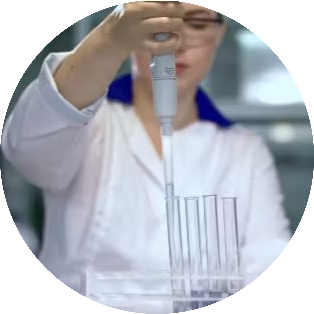
This thematic track focuses to create value from CO2 emissions through the design of integrated processes for CO2 capture and conversion. In this concept, CO2 is considered a valuable chemical building block for fuels and materials. This track also includes technologies used in CO2 storage in geological structures and other types.

This thematic track involves technologies or a set of technologies that associate biomass energy with carbon capture use and storage, a process always carried out on a large scale. With this it is possible to sequestre carbon from the atmophere. Works that present the technologies and their contribution to building a positive public perception of BECCUS influencing the design of public sustainability politicies for the Brazilian energy systems are included.

The Greenhouse Gas (GHG) Programme is dedicated to study technologies related to Measurement and quantification of GHG emissions; Mitigation of GHG emissions, such as, pneumatic machines and devices in general, Chemical looping combustion and Oxy-fuel combustion; Adsorption systems for CO2 capturing from flue gases; Deep eutectic solvents for CO2 capture from flue gases; and Membranes for CO2 capture from flue gases.

This thematic track is related to the development of documents for climate change, sustainable and decarbonization fields, such as requirements standards, specifications and guides, which can be used to consistently ensure that material, products, processes and sevices are suitable for its purposes. This track also supports policies to provide the energy transition and societal engagement, achieved by the understanding of the social perception and acceptance of all stakeholders as well as the lay public, establishing an open dialogue with society. Works and studies in these areas are key to support technology transition and implementation.

This track intends to receive papers to discuss environmental impact and social aspects of Energy Transition including but not limited to gender and justice issues, energy access and safety, poverty aliviation, women participation, development of economic activities among others.
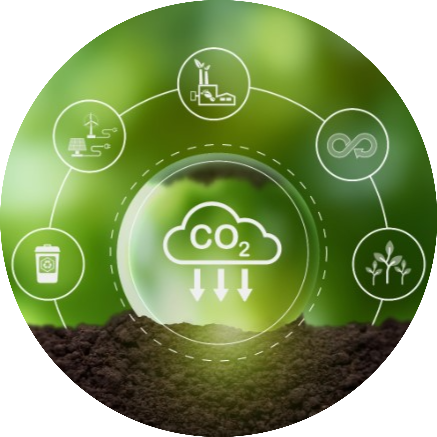
Economic papers of energy transition, including economic feasibility of renewables and non renewables, as well as how carbon credits can contribute to Energy Transition feasibility. What are the challenges and benefits for policies related to carbon credits, as well as SWOT analysis.

This track involves energy management as an opportunity to enable organizations across all sectors to realize on-going energy consumiption reducion and related GHG emissions reduction. This thack includes activities and technologies for estalishment, implementation and maintanance of energy management systems, monitoring and measuring energy performance for continual improvment; identifying, quantifying, verifying, validating and reporting energy performance improvements; energy security; energy savings calculations; terminology, competencey and conformity assessment in this field.

This thematic track seeks to present innovative and sustainable solutions focused on the decarbonization of electrical power systems. It includes but not limited to aspects such as eco-efficient materials, increased availability and efficiency of electricity production, optimization of distributed energy resources and integration with agriculture, digitalization of eletricity.
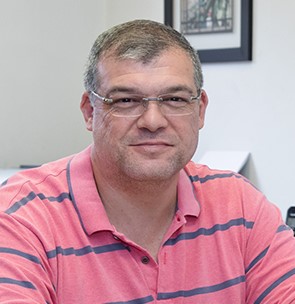
Natural Based Solutions (NBS)
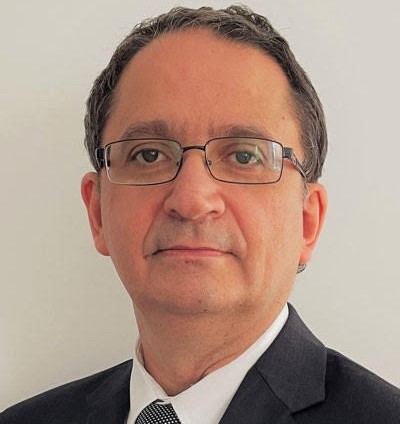
Greenhouse Gas Technologies (GHG)
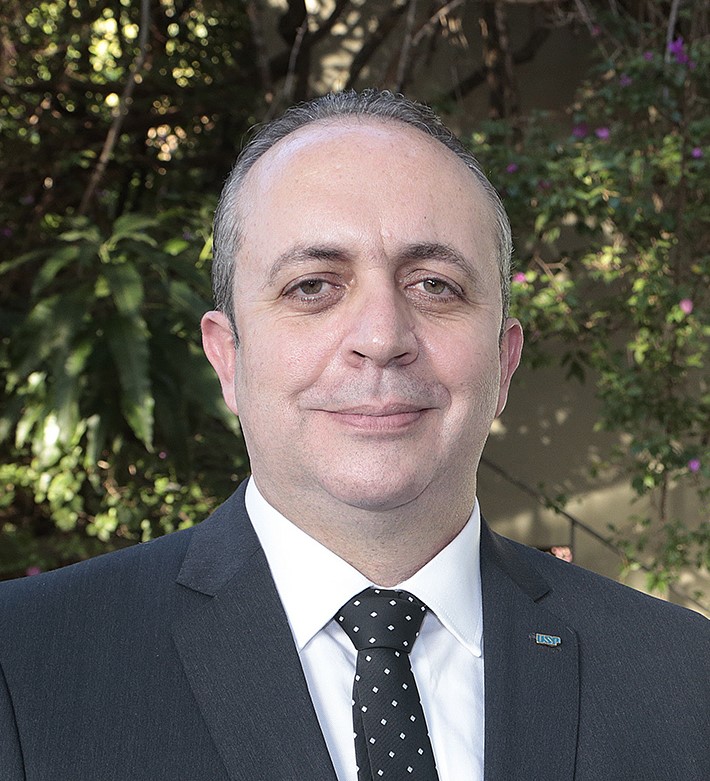
Bioenergy with Carbon Capture Utilization and Storage (BECCUS)
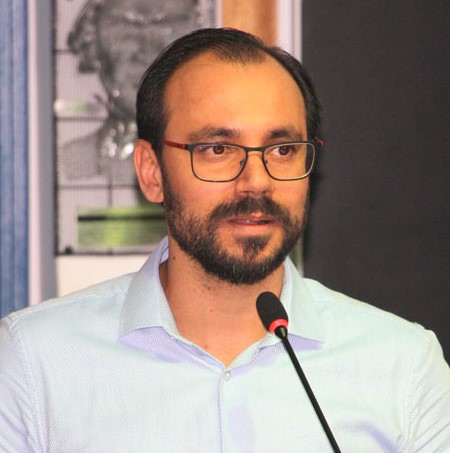
Carbon Capture Utilization and Storage (CCUS)
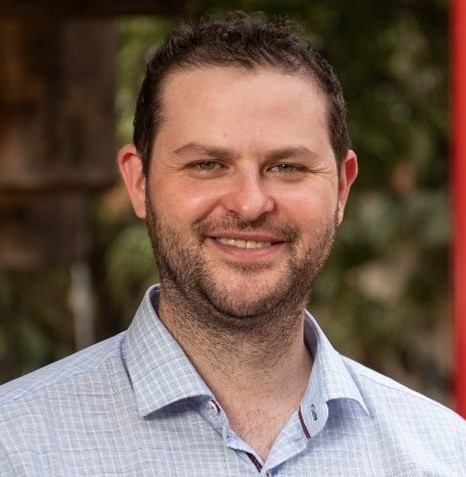
Nature Based Solutions (NBS)
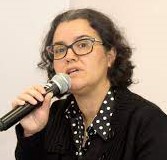
Carbon Capture Utilization and Storage (CCUS)
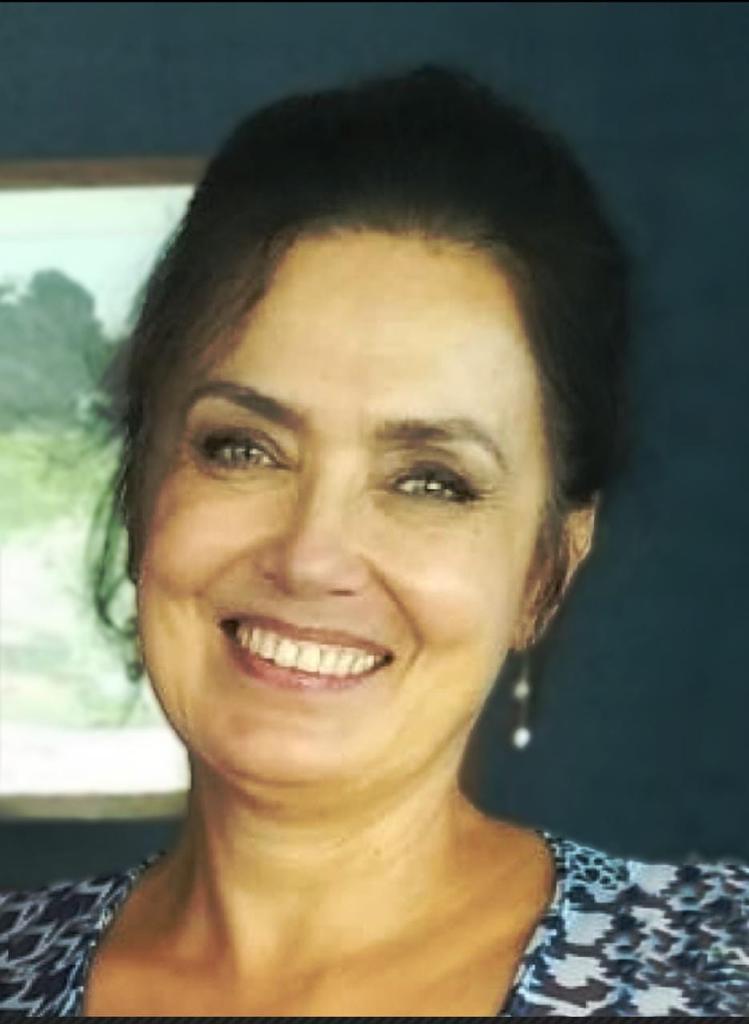
Carbon Credits & Economics
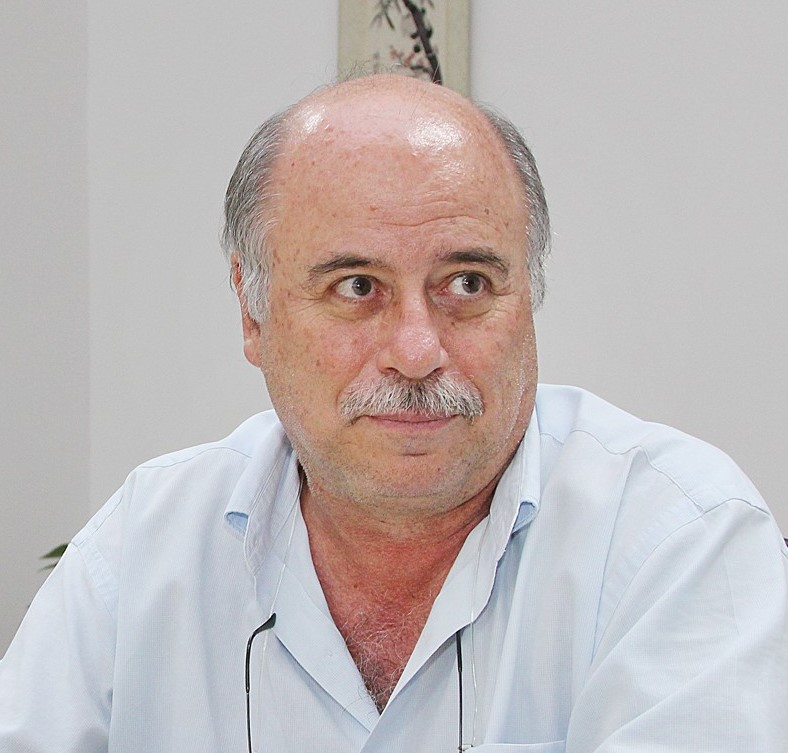
Full professor at the Institute of Energy and Environment (IEE) at University of São Paulo (USP)
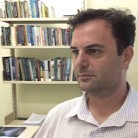
Environmental & Social & Gender
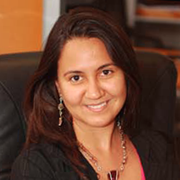
Standardization, Regulation, Social Perception & Acceptance
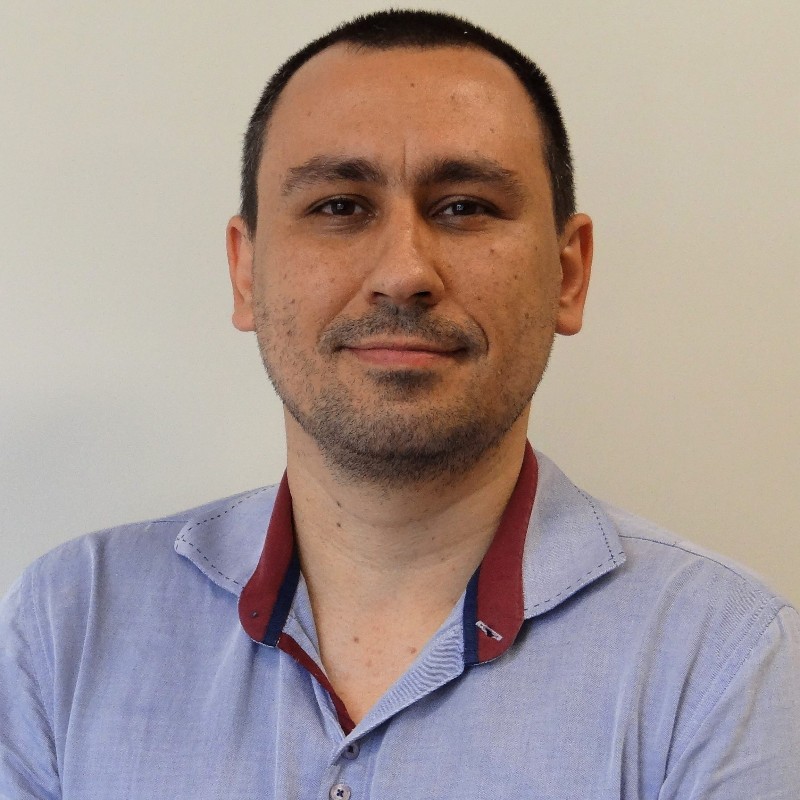
Power & Storage
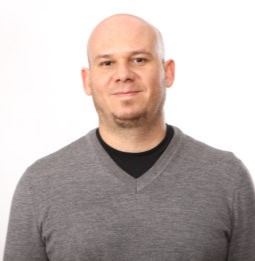
Power & Storage
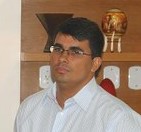
Natural Based Solutions (NBS)
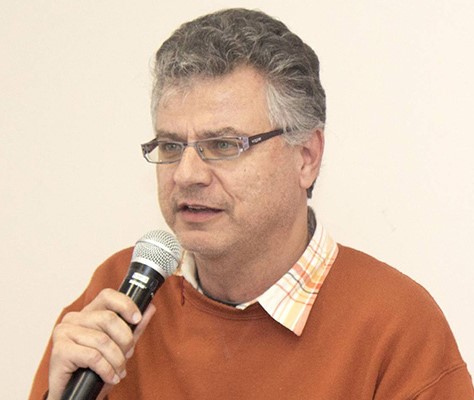
Standardization, Regulation, Social Perception & Acceptance

Greenhouse Gas Technologies (GHG)
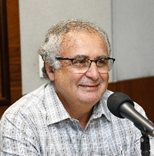
Power & Storage
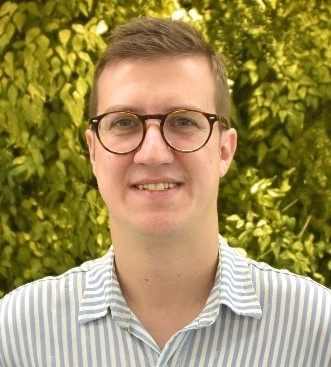
Greenhouse Gas Technologies (GHG)
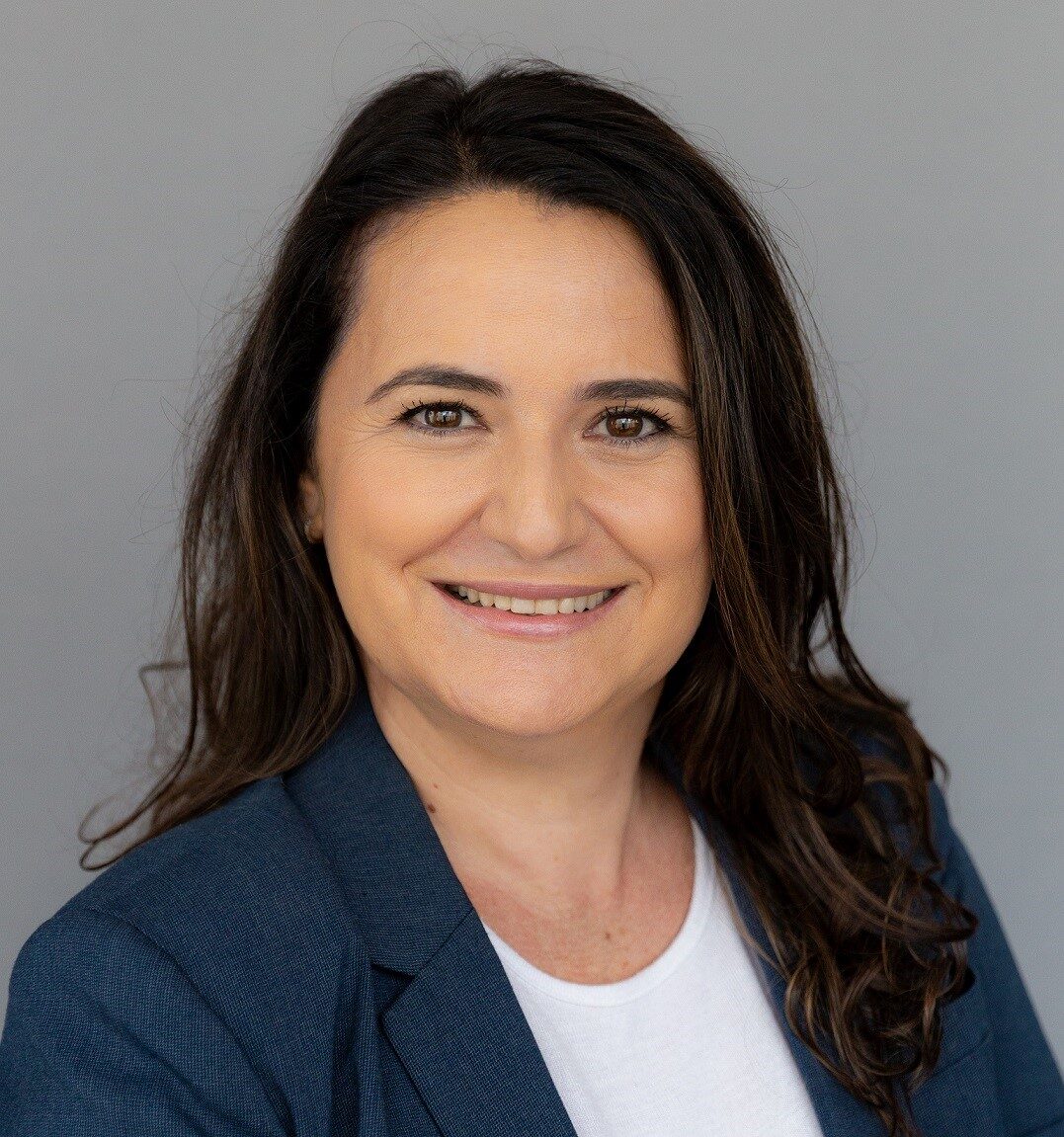
Carbon Capture Utilization and Storage (CCUS)
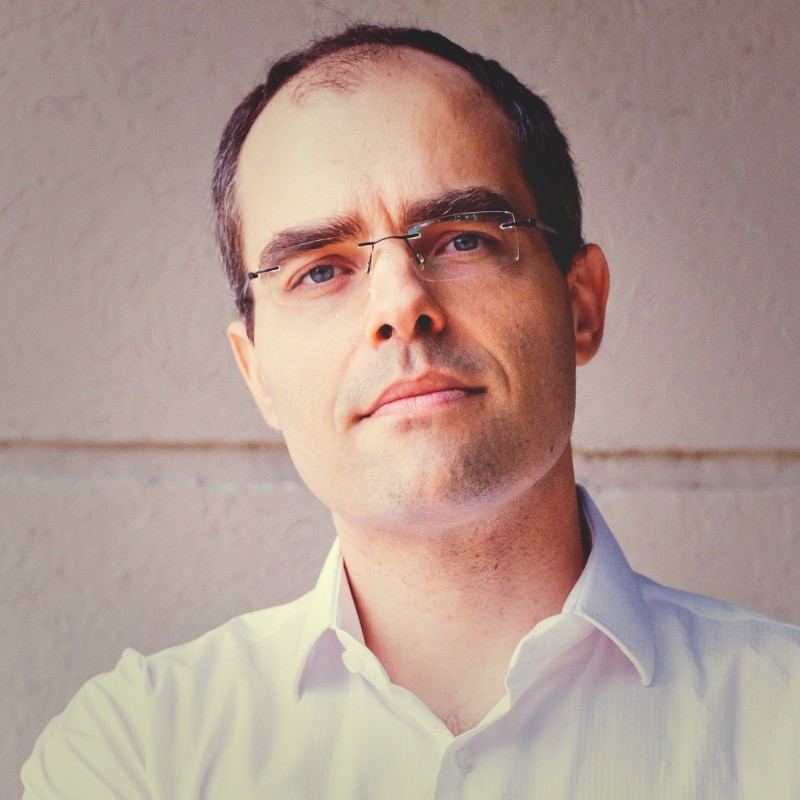
Bioenergy with Carbon Capture Utilization and Storage (BECCUS)
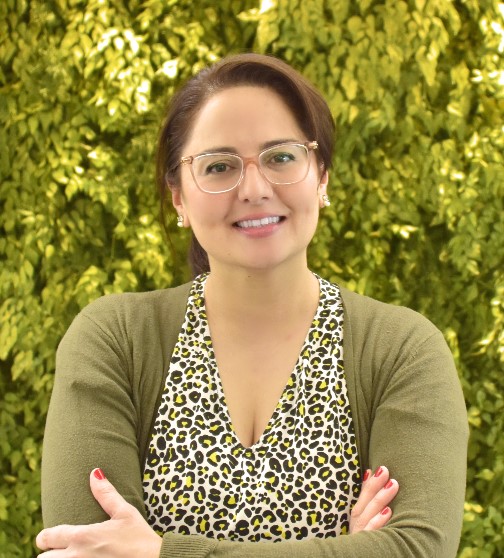
Communication & Dissemination of Knowledge Manager - RCGI.
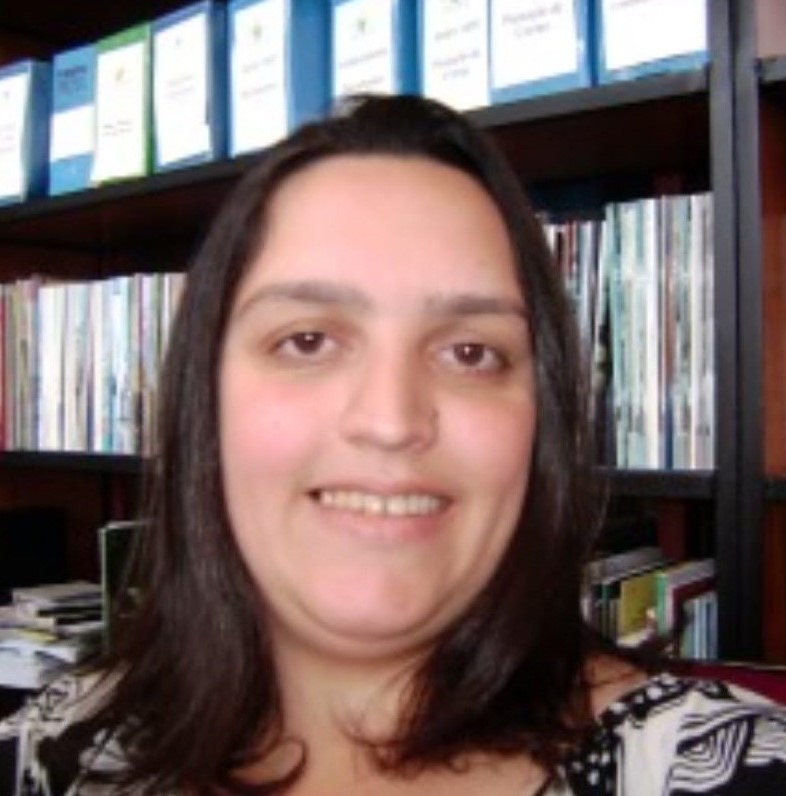
Postdoctoral researcher at IEE/USP, within the scope of RCGI.
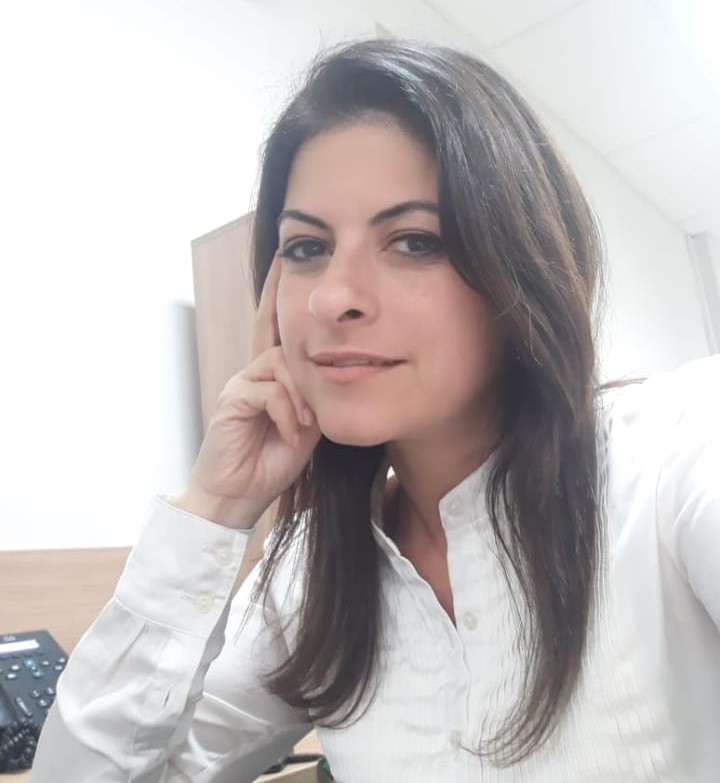
ETRI Production - RCGI.



Director of Human Resources and Institutional Communication at RCGI
Deputy Coordinator of the project “Social Perception and Science Diplomacy for the Technology Transition towards a Low-Carbon Society” at RCGI
Since 2016 serves as Director of Human Resources and Leadership Management for the RCGI – Research Centre for Gas Innovation located at the Polytechnic School of the University of São Paulo (USP), funded by FAPESP (São Paulo State Funding Agency) and Shell Brasil. In 2021 she became the deputy coordinator of the project “Social Perception and Science Diplomacy in the Technology Transition towards a Low-Carbon Society”. And in 2023, after concluding her PhD, she assumed the Directory of Institutional Communication and Human Resources. She has a degree in Psychology from the University of São Paulo (USP), a post-graduation in Administration from Fundação Getúlio Vargas (FGV), a master's in Social Psychology from Pontificia Universidade Católica (PUC-SP) and PhD in Social Psychology from the University of São Paulo (USP), with a year as researcher at Imperial College London. Before, developed approximately 18 years of experience in companies as Unilever, Andersen Consulting (Accenture), Chase Manhattan Bank (JP Morgan Chase), Banco Itaú, and Grupo VR (Sodexo), growing in her career from analyst to director. Worked in Human Resources and Change Management consulting for more than 15 years, focused on Coaching, Career Management, Leadership and Team Development, Mentoring Programs, Change Management and Organisational Culture, among others. Serves as a Visiting Professor at Fundação Getúlio Vargas (FGV) for the post-graduation program since 2009.
Low-Carbon Technology Manager – Shell.
Alexandre Breda joined Shell Brazil in December 2013; he holds a B.Sc. degree in Mechanical Engineering from Unicamp (University of Campinas) with a MBA degree in Energy from USP (University of Sao Paulo).
Alexandre has 23 years of experience in energy companies with a solid experience in innovation, energy transition, R&D and climate change.
Currently, he is the Manager for Low-Carbon & Energy Transition Technology responsible for a portfolio including NBS (nature-based solutions), CCUS (carbon capture, utilization and storage) and renewables (solar, sind, batteries and hydrogen).
Founder of Multiscale.
Honourable Mention in the Brazilian Mathematics Olympiad. He Graduated in Physics at UFSM, Master’s in Materials Physics- IFUSP and a Ph.D. in the same area. Recently he was a Pos-doc at the Research Center For Gas Innovation – Poli USP and a Visiting Researcher at the Norwegian University of Science and Technology (NTNU).
Currently, Alexsandro is the lead researcher for the PIPE project and is the founder of the Multiscale company. He possesses expertise in computer simulations in high-performance computing, with a specialisation in molecular modelling including machine learning and the implementation of mathematical model codes.
CINE Director at Center for Innovation on New Energies and Professor at University of Campinas (Unicamp).
Prof. Ana Flavia Nogueira holds a degree in Chemistry from the University of São Paulo (1996) and Master (1998) and PhD degrees in Chemistry from the University of Campinas (2001). She worked as a post-doctorate fellow at the Imperial College, UK, in 2001- 2002 and as visiting researcher at Stanford University in 2017-2018.
At the moment, Ana Flavia is Full Professor in the Chemistry Institute at UNICAMP and Director of the Center for Innovation on New Energies (CINE, www.cine.org.br). Prof. Nogueira’s research focuses on the development of functional (nano)materials and their application in solar energy conversion.
She has experience in the field of perovskite solar cells, chalcogenide and perovskite quantum dots and dense energy carriers (generation of solar fuels through photoelectrocatalytic systems using water, biomass and other low-added values substrates).
She has published more than 185 papers, seven book chapters, one book and 3 patents. Her H index is 43. The Laboratório de Nanotecnologia e Energia Solar (LNES) founded in 2005 has leadership in dye sensitized, organic solar cells and perovskite solar research in Brazil and Latin America.
In 2020 she was awarded with the ACS Leadership in Academia Award. Fellow of Royal Society of Chemistry and Member of the Brazilian Academy of Science. She is also an associate editor for the Journal of Materials Chemistry C and Materials Advances.
RCGI’ Shell Brasil Executive Committee Representative
Camila has more than 20 years of experience in Oil and Gas Industry, working in applied research for metallic and non-metallic materials, project management, market strategy and business development in companies like Evonik, TechnipFMC, Vallourec and Petrobras. Working at Shell since 2020, her current role is Technology Project Lead, managing R&D projects in Low-Carbon Energy platform, aiming the growth of CCUS technology solutions.
Camila started her career as chemistry technician, and obtained her Master’s in Chemical Engineering by Federal University of Minas Gerais, MBA in Marketing&Sales by University of Mannheim (Germany) and she is PhD candidate in Metallurgical and Materials Engineering at Federal University of Rio de Janeiro.
RCGI Director of the Nature Based Solutions (NBS) Programme
He holds a degree in Agricultural Engineering from the University of São Paulo (1997), a master’s degree in Soils and Plant Nutrition from the University of São Paulo (1999), and a PhD in Environmental Science from the University of São Paulo (2003).
He is currently a Full Professor in the Department of Soil Science at the Luiz de Queiroz College of Agriculture, University of São Paulo, working mainly on topics related to Soil Organic Matter, Global Warming and Climate Change, Agriculture and the Carbon Credit Market, Mathematical Modeling , geostatistics and geoprocessing. CNPq Productivity Scholarship and Affiliated Member of the Brazilian Academy of Sciences.
Chief Scientist and Chairman, Center of Excellence on Surface Science, Professor, Academy of Scientific and Innovative Research (AcSIR), Pune, India.
Dr. Chinnakonda Gopinath is currently working as Chief Scientist and Chairman, Catalysis Division, at the National Chemical Laboratory (NCL), Pune, and Head, Center of Excellence on Surface Science at NCL, Pune. He is also Professor of Chemical Sciences, Academy of Scientific and Innovative Research (AcSIR), New Delhi, India. He obtained his Masters from Madurai Kamaraj University on 1986 and Ph. D. from IIT, Madras on 1993. His research interests include surface science, heterogeneous catalysis, solar to chemical energy conversion, new catalytic materials by simple methodology and nanomaterials. He has published more than 200 research articles, seven patents granted, filed 2 patents and produced 19 Ph. D. graduates. Currently, five PhD students are working at different stages in his group.
He is an elected fellow of the Indian Academy of Sciences, Bangalore. He is a recipient of few awards, including the Alexander von Humboldt (AvH) fellowship (1995-97), CNRS visiting Professor at Univ. Lille on 2010, CRSI Bronze Medal on 2008, Teaching in ErasmusMundus sponsored courses. He served as an Editorial Board member of the Journal of Chemical Sciences and currently serving in the Indian Journal of Chemical Technology.
Researcher on Technological, circular and sustainable farming. Professor USP.
Danielle is a researcher at the Center for Carbon Studies in Tropical Agriculture and a post-doctoral fellow at the “Luiz de Queiroz” School of Agriculture at the University of Sao Paulo. She is a professor admitted to the Talent Attraction and Retention Program competition at the University of São Paulo.
She has also been a visiting researcher at the Asia-Pacific Center for Environmental Law at the National University of Singapore, at the Department of Law and Computer Science at University College London, England, and at the Whitney and Betty MacMillan Center for International and Area Studies at Yale University, USA. He was twice awarded a scholarship from the Coordination for the Improvement of Higher Education Personnel (doctorate and sandwich).
CEO of ABEEólica – Brazilian Association of Wind Energy and New Technologies. Co-chair of GWEC (Global Wind Energy Council)
Lawyer, administrator, environmentalist, federal deputy.
Feldmann was elected federal deputy for three consecutive terms. In the first term, he served as a constituent deputy in the drafting of the 1988 Constitution, being responsible for drafting the chapter dedicated to the environment, one of the most complete and advanced texts on this topic in the world. During his legislative life, Feldmann was the author of several laws covering a wide range of topics such as environmental education, solid waste, batteries, nuclear energy, protection of the Atlantic Forest and underground cavities, environmental impact studies, environmental audits, and packaging, among others. Among the main laws, the Law on Reducing Pollutant Emissions from Vehicles, the National Environmental Education Policy, and the Law on Public Access to Environmental Data and Information stand out. Furthermore, Feldmann was the rapporteur on important laws such as the National Water Resources Policy, the National System of Nature Conservation Units, and the United Nations Framework Convention on Biological Diversity.
Senior Professor at the Institute of Energy and Environment of the University of São Paulo.
Senior Professor at the Institute of Energy and Environment of the University of São Paulo with about thirty supervised master’s/doctoral theses. Postdoctoral fellow at Tohoku University, Japan, at Princeton University and at the Massachusetts Institute of Technology (MIT), both in USA. Worked in the area of Nuclear Physics until 1984 and currently in Renewable Energy and the Environment. Collaborated with the Intergovernmental Panel on Changes of the Climate (IPCC) of the United Nations from 1994 to 2014, as coordinating lead author and reviewing editor. Along with other scientists, received the 2007 Nobel Peace Prize for the IPCC research contributions.
Professor USP. Geosciences, with an emphasis on Mineralogy, Sedimentology and Sedimentary Geochemistry.
She holds a degree in Geology from the Institute of Geosciences of the University of São Paulo (1991), a master’s degree (1994), and a doctorate (1999) in Mineralogy from the Institute of Geosciences, USP. She is a professor (RDIDP) of the Bachelor’s Degree Course in Environmental Management at the School of Arts, Sciences, and Humanities at USP. Master’s and doctorate advisor in the Postgraduate Program in Energy at the Institute of Energy and Environment at USP.
She has experience in the area of Geosciences, with an emphasis on Mineralogy, Sedimentology and Sedimentary Geochemistry, working mainly on the following topics: Rock-Fluid Interactions, Provenance and Diagenesis of Siliciclastic Sedimentary Rocks, Clay Geology and Geochronology of Clay Minerals, Petroleum Systems, Environmental Geology, CO2 Capture and Storage.
Undersecretary of Energy and Mining at the Secretariat of Environment, Infrastructure, and Logistics of the Government of the State of São Paulo
Undersecretary of Energy and Mining at the Secretariat of Environment, Infrastructure, and Logistics of the Government of the State of São Paulo. PhD from the Energy Planning Program (PPE) at the Alberto Luiz Coimbra Institute for Postgraduate Studies and Engineering Research (COPPE) at the Federal University of Rio de Janeiro (UFRJ). Chemical Engineer from the State University of Rio de Janeiro (UERJ). Member of the Board of Directors of the Environmental Company of the State of São Paulo (CETESB). She was a member of the Board of Directors of the Geological Survey of Brazil (SGB/CPRM). She was Deputy Secretary of the Secretariat of Petroleum, Natural Gas, and Biofuels (SPG) at the Ministry of Mines and Energy (MME), and previously she held the positions of Director of the Department of Petroleum Derived Fuels (DCDP) and General Coordinator of Refining, Supply, and Infrastructure in the same Department. At the Energy Research Company (EPE), she developed prospective studies of the Brazilian energy matrix and technical studies associated with the supply of petroleum derivatives to support national energy planning. In the private sector, she worked at the companies Refinaria de Petróleos de Manguinhos and Shell Brasil.
Abstract
The presentation will draw on the speakers own experience in taking two companies out of University research into commercial development, and the important role that academic research can play in creating technology, jobs and value. This will be discussed in the context of the role that electrochemical technologies such as fuel cells, electrolysers and batteries, can play in the low carbon transition, and how this supports the increased production and utilisation of hydrogen and its carriers as a green fuel.
Bio
Professor Nigel Brandon is Dean of the Faculty of Engineering at Imperial College London where he holds the Chair in Sustainable Development in Energy. His research interests are focussed on the science, engineering, and technology of electrochemical devices for the low carbon transition. He is a founder of Ceres Power, a listed fuel cell and electrolyser company now valued at around $800M, and a founder and Chair of RFC Power, an SME developing innovative manganese-hydrogen flow batteries. He holds a São Paulo Excellence Chair, and is PI od the RCGI project to develop a bioethanol fuelled Solid Oxide Fuel Cell for transport applications. He is a Fellow of the Royal Academy of Engineering, a Fellow of the Royal Society and an overseas member of the US National Academy of Engineering.
Professor of environmental physics at the University of São Paulo, Brazil, and a visiting scientist at the Max Planck Institute in Mainz, Germany.
Paulo Artaxo is a professor of environmental physics at the University of São Paulo, Brazil, and a visiting scientist at the Max Planck Institute in Mainz, Germany. He is a member of the IPCC – UN Intergovernmental Panel on Climate Change. He has developed his career working with the Amazon environment and global climate change. He is a member of the Brazilian Academy of Sciences (ABC) and the World Academy of Sciences (TWAS). He is vice president of the Academy of Sciences of the State of São Paulo (ACIESP). Paulo Artaxo has published over 480 scientific papers and presented more than 1200 scientific papers at international conferences. He published 28 articles in the Science and Nature family of journals. He is among the most cited Brazilian scientists, with 53,310 scientific citations on the ResearchGate platform and an “H-index” of 115. He has 64,051 citations on Google Scholar with an H index of 117. He received several awards, like the TWAS Earth Science Prize, and is a fellow of the American Association for the Advancement of Sciences (AAS). He also received the Doctorate Honoris Causa from the University of Stockholm, Sweden. He was included in the Clarivate Analytics list as belonging to the top 1% of the most cited researchers worldwide in 2014, 2015, 2018, 2019, and 2020.
Assistant Professor at Universidade de São Paulo
Dr. Chinnakonda Gopinath is currently working as Chief Scientist and Chairman, Catalysis Division, at the National Chemical Laboratory (NCL), Pune, and Head, Center of Excellence on Surface Science at NCL, Pune. He is also Professor of Chemical Sciences, Academy of Scientific and Innovative Research (AcSIR), New Delhi, India. He obtained his Masters from Madurai Kamaraj University on 1986 and Ph. D. from IIT, Madras on 1993. His research interests include surface science, heterogeneous catalysis, solar to chemical energy conversion, new catalytic materials by simple methodology and nanomaterials. He has published more than 200 research articles, seven patents granted, filed 2 patents and produced 19 Ph. D. graduates. Currently, five PhD students are working at different stages in his group.
He is an elected fellow of the Indian Academy of Sciences, Bangalore. He is a recipient of few awards, including the Alexander von Humboldt (AvH) fellowship (1995-97), CNRS visiting Professor at Univ. Lille on 2010, CRSI Bronze Medal on 2008, Teaching in ErasmusMundus sponsored courses. He served as an Editorial Board member of the Journal of Chemical Sciences and currently serving in the Indian Journal of Chemical Technology.
Professor at the Institute of Energy and Environment – USP.
She has a Post-Doctorate in Energy from USP (2003), a PhD in Finance and Economics from FGV-SP (1999) with an Exchange at the University of New York (1997), and a Master’s in Administration from UFBa (1988). She graduated in Economics from the University of Brasília. In 2005, she joined the USP Institute of Energy and Environment as a PhD Professor, working in the Postgraduate Program in Energy and also in the Undergraduate Courses at FEA and Poli/USP. She was a member of the Board of Directors of Eletrobras; president of the Amcham Strategic Energy Committee; and director of the Brazilian Society of Energy Planning, having been responsible for the Brazilian Energy Magazine. From 2013 to 2018, she was Deputy Coordinator of the Research Center for Carbon Emissions Policy and Regulation (NUPPREC). Additionally, she was a member of the Board of Directors of Chesf and the National Association of Energy Consumers (ANACE-Brazil).
She has been working as an ad hoc consultant for FAPESP and also as a reviewer in disputes with regulatory agencies and arbitration experts. She began her career in Brasília, at IPEA, a foundation linked to the Ministry of Planning, then worked as an executive in a series of national and international banks based in São Paulo. With practical experience in the public and private areas, she has been developing activities with an emphasis on Strategic Planning and Corporate Governance applied to Energy and the Environment. Among his topics of interest are: Regulation and Tariff Policy; Public Policies and Climate Change; Mediation and Arbitration; Energy Transition; Risk Management and Energy Supply Security.
Director of the Brazilian Electricity Regulatory Agency (ANEEL).
Mrs. Agnes Maria de Aragão da Costa is, since December 2022, Director of the Brazilian Electricity Regulatory Agency (ANEEL) with a term of office until December 2, 2028.
Between 2019 and 2022 she was the Head of the Special Advisory Board on Regulatory Affairs of the Ministry of Mines and Energy (MME), specialising in Energy and Mining Economies.
She is enthusiastic about the role of the energy sector in the positive transformation of society.
In her last role, she coordinated the Modernization of the Electricity Sector, The National Hydrogen Program, the Permanent Commission for the Analysis of the Methodologies and Computational Programs of the Electricity Sector (CPAMP), and MME policies related to (i) energy transition, (ii) research, development, and innovation; and (iii) international and multilateral cooperation.
She worked at the MME for almost eighteen years, recommending and formulating public policies, being a member of the career Experts in Public Policy and Government Management since 2006, and having also held, until 2019, the roles of advisors, special advisor, program directors, and Deputy Head of the Special Advisory Board on Economic Affairs.
She holds a bachelor’s degree in Economic Science from Federal University of Rio de Janeiro (UFRJ) and a master’s degree in Energy for University of São Paulo (USP).
She has experience in corporate governance, having served on councils since 2014.
She was a member of the Board of Directors of CEAL, CEPISA, and Norte Energia, and a member of the Audit Committee of Eletrobras and Petrobras.
Former Ambassador of Brazil to Japan and India and currently Secretary of Climate, Energy and Environment of Itamaraty
André Aranha Corrêa do Lago was born in 1959. He holds a bachelor’s degree in economics from the Federal University of Rio de Janeiro (1981) and began his diplomatic career in 1982. At the Secretariat of State in Brasília, he worked in the areas of international organizations, commercial promotion, ceremonial, and energy. Abroad, he served at embassies in Madrid, Prague, Washington, and Buenos Aires and at the Mission to the European Union in Brussels. He has been working on sustainable development issues since 2001. He was director of the Department of Energy (2008–2011) and the Department of the Environment (2011–2013), during which time he was Brazil’s chief negotiator for climate change (2011–2013) and for Rio+20 (2011–2012). He was ambassador to Japan (2013–2018), India (2018–2023), and, cumulatively, Bhutan (2019–2023). Since March 2023, he has been the Secretary of Climate, Energy, and Environment at the Ministry of Foreign Affairs. Corrêa do Lago has published books and articles on sustainable development and climate change and is also an architecture critic. He is married and has four children.
Technical Advisor to the Institutional and International Department at CETESB, the Environmental Company of the State of São Paulo.
Ana Paula Fava has a degree in Psychology from the Pontifical Catholic University of São Paulo, an MBA in Cultural Management from Fundação Getúlio Vargas. Over the course of sixteen years (2000 – 2016) at the State Secretariat for the Environment, he served as assistant for international affairs to Prof. José Goldemberg (2008–2016), in the recovery of the Pomar Project (2007 – 2008) and as head of the international area (2009–2016). He accompanied several Environment Secretaries at United Nations Conferences (COPs) and coordinated the participation of the State of São Paulo in the historic ones: COP-10, in Nagoya, Japan (2010); Rio+20, RJ (2012); and COP-21, in Paris (2015). In June 2016, he took over as head of the Special Advisory for International Affairs of the State of São Paulo, where he was responsible for the international agenda of the 25 Government Secretariats, Companies and Authorities and for serving the 100 countries represented by their consulates until December 2018. During this period, she advised and accompanied Governors Geraldo Alckmin and Márcio França in audiences with ambassadors, heads of state, and foreign delegations. In addition to organizing international trips for several São Paulo authorities. She was Executive Coordinator of the International Relations Advisory Council (2017–2018) and of the World Economic Forum Latin America in São Paulo (March 2018). Since 2016, she has coordinated the implementation of the Sustainable Development Goals (SDGs), the UN 2015–2030 agenda in the government. Promoted awareness-raising and good practices workshops; coordinated the creation of the website www.guiadoimigrante.sp.gov.br, the publication “The World We Want” to celebrate 70 years of the Universal Declaration of Human Rights, and the creation of the State SDG Commission (Decree 63,792, of November 9, 2018). She was Executive Coordinator of the State Commission for Sustainable Development Goals from 2019 to 2022. She is currently the technical advisor for international cooperation at CETESB.
Full Professor at Universidade de São Paulo (USP)
Ariaster Baumgratz Chimeli a full professor of economics at the University of São Paulo specializing in environmental economics. He holds a Bachelor’s degree from the Federal University of Minas Gerais, and Master’s and Ph.D. degrees from the University of Illinois at Urbana-Champaign, and was a post-doctoral research fellow
at the International Institute for Climate and Society at Columbia University. Before joining USP, Ariaster was an associate professor of economics at Ohio University.
His research focus is on environment and development economics, and he has conducted theoretical and empirical work on topics such as economic growth and the environment, climate variability, mitigation and adaptation to climate change, tropical deforestation, energy, international trade and the environment, and the socioeconomic impact of extreme events.
Ariaster has conducted advisory and consulting work for the US Department of Energy, International Finance Corporation (World Bank Group), governments of the states of São Paulo and Minas Gerais in Brazil and Ohio in the US, Brazilian Congress and the private sector.
CEO UN Pacto Global – Brazil
More than 20 years of experience in corporate affairs and sustainability issues acting as an executive for the private sector and international institutions. Leadership, climate change, energy, sustainability strategy, ESG, SDG, human rights and integrity.
Tackling societal issues generating and protecting value. Promoting Impact!
Advisor to the FAPESP Scientific Board
Carlos F.O. Graeff received his Ph.D. in Physics from the State University of Campinas (UNICAMP) in 1994. After a post‐doctorate at TU München as an Alexander von Humboldt Foundation stipendiary, he joined the University of São Paulo (USP), Campus Ribeirao Preto, as Assistant (1996-1999) and Associate Professor (1999‐2006). In 2006 he joined the State University of São Paulo (UNESP) as Full Professor. He is research fellow 1A from the Brazilian National Research Council (CNPq); member of the advisory board of Journal of Materials Chemistry C, Materials Advances (RSC); and member of Academia de Ciencias do Estado de São Paulo (ACIESP). Professor Graeff was a visiting researcher at several universities around the world examples: École Polytechnique Fédérale de Lausanne (EPFL), Switzerland (2003-2004); Huazhong University of Science and Technology (HUST), China (2011-2015); Beijing Jiatong University (BJU), China (2015-2017) and Helmholtz-Zentrum Berlin für Materialien und Energie (HZB), Germany (2019-2022). Former: Higher Education Coordinator of the State Government of São Paulo; vice president for research of UNESP (2017-2021); member of FAPESP Engineering Panel (2016-2017); coordinator of the Materials Science Division in CAPES-Ministry of Education (2009-2014). His field of interest is Materials Science, more specifically electronic devices (solar cells, thin-film transistors, etc.), biomaterials/bioelectronics and electronic magnetic resonance. He has a strong interest in nurturing scientific talent and supervised more than 50 Masters and Ph.D. students as well as postdocs. He has published more than 200 research articles and holds several patents, his Scopus (ID: 57773923100) h-index is 33. (09/2023).
Founder and CEO of MOF Tech
Dagoberto Silva has more than 10 years of experience in R&D and Nanomaterials projects with applications in different areas. PhD in Chemistry with an emphasis on nanomaterials, focused on new energy sources and carbon reduction.
Enthusiastic about transferring academic knowledge to industry and creating new technologies. Founder of MofTech P&D, a startup focused on the development of nanotechnology, using Data Science and AI to design customised materials for specific uses. He worked in national and international research laboratories, executing and monitoring projects in the areas of nanotechnology and organic synthesis.
He has experience in the research and development of methods for the adsorption and capture of carbon dioxide (CO2), the development of catalysts for carbon abatement, the development of nanocatalysts, mono and bimetallic, supported by the “Metal Organic Framework” (MOF) for the adsorption and conversion of CO2 into higher alcohols and fullerenes functionalized with Nucleic Acids. Also, he has experience in the research and development of nanostructures containing oligonucleotides for use as biomarkers and Gen Delivery. Synthesis and purification of oligonucleotides for functionalization of organic molecules.
Research and Development Coordinator – Quanticum
Currently, Deise is a postdoctoral student at the Universidade Estadual Paulista Júlio de Mesquita Filho, UNESP, Jaboticabal, and a Ph.D. candidate at the Forest Engineering University of A Corunã–UDC. She holds a PhD in Agriculture (Soil Science) from Universidade Estadual Paulista Júlio de Mesquita Filho, UNESP, Jaboticabal, and a master degree in Agriculture (Soil Science) from Universidade Estadual Paulista Júlio de Mesquita Filho, UNESP, Jaboticabal.
She has a degree in agriculture from Faculdade Doutor Francisco Maeda, FAFRAM, Brazil.
She is also the Research and Development Coordinator at Quanticum, and she is a visiting researcher at the Instituto Federal de Machado. She has experience as a data analyst at the Department of Soil and Carbon at Salva and Sebrae.
Deputy Scientific Director & Director of Greenhouses Gases (GHG) Programme, RCGI.
He began his work as Professor in the Department of Mechatronics and Mechanical Systems at the Polytechnic School of the University of São Paulo (EPUSP), Brazil, in 1998. He was promoted to Associate Professor in 2003 and Professor in 2005. He is currently a researcher of CNPq 1A level in Brazil. He obtained Bachelor and master degree in Mechanical Engineering from EPUSP in 1990 and 1993, respectively, and the Ph.D. degree in Mechanical Engineering from The University of Michigan – Ann Arbor, USA, in 1998. During his Ph.D., he received two awards: Distinguished Achievement Award and Ivor K. McIvor Award. The first award is given in recognition of excellence and academic staff, and the latter in recognition of performance in research.
He specializes in Computational Mechanics, particularly in the application of finite element and topology optimization methods in smart structures and materials, such as piezoelectric actuators and sensors, piezocomposite materials (including functional gradient materials – FGM), energy harvesting devices, microelectromechanical systems (MEMS), and flow machines. He was invited as visiting professor at Kyoto University, Japan, in 2003, and University of Illinois at Urbana-Champaign, USA in 2003, 2004, 2006 and 2007. He has published articles in international journals of selective editorial policy, acted as reviewer of international journals, and international conferences, and as ad hoc consultant for international funding agencies such as NSF (USA), NRF (South Africa), and ISF (Israel). Author has participated regularly in symposia and conferences around the world, also with publication of articles. He has served as a member of the scientific committee, has organized oral sessions, and has given keynote lectures and plenary talks at several international conferences.
Author was the “Chair” of the congress “ISMM&FGM2014”, SP, Brazil. He participated as a panelist in the Panel of Experts for Proposals on the Mechanics of Materials (MoM-X) 2010 program of the NSF USA and was a voting member in the “Frontier Ideas” meeting panel to decide on potential topics for the ” Emerging Frontiers in Research and Innovation (EFRI-2011) “, USA. He is a member of the editorial board of the journal Mechanics Research Communications (MRC). In 2016, he was co-editor of the special edition “Recent Advances in Multiscale, Multifunctional and Functionally Graded Materials” of the MRC journal.
Economist, Professor at Fundação Getúlio Vargas (FGV), Coordinator of the Center for Infrastructure and Environmental Solutions Studies.
Partner at GO Associados, Professor at Fundação Getúlio Vargas (FGV), Coordinator of the Center for Infrastructure and Environmental Solutions Studies. PhD from the University of California (Berkeley), master’s degree from Unicamp, and bachelor’s degree from FEA-USP, always in Economics. Work in the public and private sectors as an academic, executive, public policy maker, regulator, and member of boards of directors of national and foreign companies in different segments of the economy.
Professor at FGV since 1990, having been a visiting professor at Columbia University in 2006. Books and articles published in national and international magazines, including Brasil Real which won the Jabuti award. Member of the International Academy of Law and Economics (AIDE). President of Sabesp in 2007–11. President of CADE in 1996–2000, participating in the discussion of antitrust legislation in Brazil and abroad. Assistant Secretary for Economic Policy (1993–94) and Secretary for Economic Monitoring (1995), having participated in the implementation of the Real Plan. Member of the TIM Board of Directors and president of the Statutory Audit Committee; member of the Braskem Board of Directors; coordinator of the Statutory Compliance and Audit Committee; president of the Board of Directors of Estre Ambiental; and member of the Self-Regulation Board of Febraban. He is also on a pro bono basis, ETCO, CIEE, GRAPE ESG and the Executive Secretariat for Climate Change (SECLIMA).
He was a member of the UBER World Advisory Board and the Boards of Directors of Usiminas, Sabesp, CESP, Nossa Caixa, and Varig. Participates in the political-economic debate through articles in various conventional media outlets and social networks. I was a columnist for Folha de São Paulo, UOL and Rádio Bandeirantes. He collaborates with several vehicles and makes comments on economic issues.
Founder and CTO of Carbonic.
Graduated in BSc Chemistry from Universidade de São Paulo (2014), with a year abroad at the University of York, in the MSc Green Chemistry and Sustainable Industrial Technologies (2012/2013). PhD in Chemistry obtained in the University of Sao Paulo (2021) in the area of heterogeneous catalysis for the hydrogenation of CO2 to methanol, particularly over rhenium catalysts, at IQ-USP under supervision of Prof Pedro Vidinha. Currently, she is still in the group of Prof. Pedro Vidinha as a postdoctoral researcher associate working in the hydrogenation of CO2 to alcohol, as part of a start up called Carbonic.
General Manager, Technology & Innovation, Shell Brasil
Senior Executive in the energy business for more than 30 years, Olivier is currently the General Manager, Technology and Innovation in Shell Brasil. Prior to this, he occupied senior positions in BG Group, a UK Independent, as Corporate Chief Technology Officer and BG Brasil Chief Operating Officer.
Since 1990, Olivier has acquired a wide experience in the Oil & Gas and Energy business with Shell International, when he managed key assets worldwide, in UK, Oman, Malaysia and Brazil. More recently, he has been leading the Energy Transition challenges from the R&D and Innovation fronts. A quote he particularly likes, from Steve Jobs: “It doesn't make sense to hire smart people and then tell them what to do. We hire smart people so they can tell us what to do.”.
Olivier is married to Anne-Catherine, with 3 grown-up graduate children. He holds an MSc and PhD in Applied Mathematics from the University of Louvain, Belgium, and Executive Management certificates from Wharton, USA and Cranfield, UK.
Head of Environment, University of São Paulo
Associate Professor at the Department of Civil Law at the Faculty of Law at USP He holds a bachelor’s degree (2011), a doctorate (2007), and a master’s degree (2002) from the same institution. Advisor for master’s and doctoral courses at the USP Law School and the PROCAM Environmental Science Program at USP. Lead researcher at the Group of Studies Applied to the Environment: preventive and reparative protections for damages (USP). Main areas of activity: sustainable consumption; reverse logistics; solid waste and post-consumer civil liability; shared responsibility; causal link; contaminated areas; civil liability for damage to the environment; environmental compensation. Lecturer in Brazil and abroad, he has published several works, with emphasis on the book “Solid waste and post-consumption civil liability”, by Editora Revista dos Tribunais. Member of the Brazilian Institute of Civil Responsibility Studies – IBERC. Researcher at the Center for Studies and Research in Disasters at USP – CEPED. He was president of the OAB/SP Solid Waste Committee. She was Director of the Regional Office of the UN Cities Program at USP. She was Secretary of the Environment for the State of São Paulo. He was Superintendent of Environmental Management at USP. President of the Environmental Company of the State of São Paulo – CETESB. Nominated by Poder Magazine among the 50 most influential women in Brazil.
Full Professor of Bioengineering at University of Campinas (Unicamp).
Telma Teixeira Franco received her PhD in Biochemical Engineering from the University of Reading (England) in 1992 and her bachelor and Master’s degree in Food Science in 1987 from the University of São Paulo, USP.
She works as Professor of Bioengineering at the School of Chemical Engineering of University of Campinas (UNICAMP) since the year 1996.
She directed the Center of Energy Planning/NIPE from 2013 to 2017. The last Google Scholar search counts and H-index 42, in October 2023. More importantly, 33 PhD, 33 MSc students have graduated under her guidance and of 30 post doc fellows.
Professor Franco recent most relevant research projects are the following:
i) Plasticulture Engineering Centre, CEP. It is supported by FAPESP & BRASKEN. It aims to meet the needs from the agriculture producers and privileging already dominated technologies, border or disruptive technologies or a combination of them to create a sustainable plastic culture market in Brazil. It wants to broaden complex learnings, pointing out the sustainable paths towards
a contemporary Plasticulture and generating practical solutions in this field.
ii) Evaluation of the availability of residual biomass and the potential for the production of dedicated biomass for bioenergy/ sponsored by Petrobrás/ANEEL.
iii) An integrated approach to explore a novel paradigm for biofuel production from lignocellulosic feedstocks, sponsored by Fapesp/BBRSC.
iv) Road map for sustainable aviation biofuels for Brazil. Flightpath to Aviation Biofuels in Brazil – Action Plan/ by Boeing, Embraer and FAPESP.
v) Microalgae biorefinery/ sponsored by Petrobrás/ANP.vi) Biorefinery from sugarcane bagasse to lactic acid/ Fapesp/CNPq.
vii) Microbial lipids production from sugarcane bagasse/ sponsored by Shell/ANP.
Director of Climate, Energy and Sustainable Finance – Conselho Empresarial Brasileiro para o Desenvolvimento Sustentável – CEBDS.
Specialist in climate change and sustainability with 15 years of experience and knowledge of intersectoral and government/private trends in climate policies and agri-food systems. Experience in research and engagement processes to improve private policies and practices, with an emphasis on governance and transparency.
She has a law degree with a doctorate in energy and environment, having carried out part of her research and projects abroad to learn about other cultures and contexts. Over the years, she has become an interdisciplinary researcher and manager on cross-cutting issues, and more recently, she has researched the role of behavioral science in fostering decision-making towards a more sustainable and fair world. Viviane is also the author and reviewer of several research documents published as articles, books, and book chapters. She participated as an expert in government committees and in several UNFCCC COPs as an observer and speaker at side events.
Executive Director at ABRINSTAL & CEO at Newen Consulting.
He graduated in Electrical Engineering from Poli USP (1985).
He holds a MBA in Knowledge, Technology and Innovation from FEA USP (2001), a master in Energy from the IEE USP Interunit Program (2006). He holds a Ph.D. in Sciences from USP (2012). Postdoctoral student at USP (in progress). He is currently director of Newen Engenharia Consultiva and Executive Director of the Brazilian Association for Conformity and Efficiency of Installations – ABRINSTAL. He has experience in the area of Strategic Management (strategic and operational planning, process mapping, innovation and competitiveness) and Technological Management, with specialization in the area of quality infrastructure and basic industrial technology (regulation, assessment of conformity of products, processes and services, innovation and technological development systems). He is coordinator of research projects in Climate Change within the scope of the Research Center for Gas Innovation – RCGI and worked as an energy consultant for the United Nations Industrial Development Organization – UNIDO. He works mainly on the following topics: Climate Change, Energy Management, Energy Economics, Process and Organization Management, Conformity Assessment, Public Policies.
Professor of Physical Chemistry in the Department of Chemistry, Imperial College London.
Anthony Kucernak is Professor of Chemical Physics, Imperial College London and is known internationally as an innovator in the electrochemistry field where his group develops new techniques and methods to probe and understand the electrochemical interface and apply that knowledge to the development of improved electrocatalysts and electrode structures in fuel cells, electrolysers, electrochemical hydrogen pumps and redox flow batteries. His work straddles not only fundamental science but covers the application of that science to real-world systems. He has more than 20 patent applications with twelve patents currently licensed to companies.
He is co-founder of four start-up companies in the area of his research.
Head of Oil Products and Biofuels Studies Department, Brazilian Energy Research Office
Chemical Engineer graduated by Chemistry School of Universidade Federal do Rio de Janeiro. Master in Environmental Planning and Doctor of Science (DSc) in Energy Planning by Instituto Alberto Luiz Coimbra de Pós-Graduação e Pesquisa de Engenharia (PPE/COPPE/UFRJ). Chemistry technician by Escola Técnica Federal de Química do Rio de Janeiro. Since 1999 has been involved in the development and coordination of studies related to energy planning, highlighting the crafting of medium and long-term scenarios for energy supply and demand, with emphasis on forecasts for oil products, ethanol, biodiesel, bioelectricity, biogas, climate change and energy demand in the transport sector. Analyst at Brazilian Energy Research Office (EPE in its Portuguese acronym) since 2006, has undertaken the roles of Technical Consultant and, since 2019, Head of Oil Products and Biofuels Department. Represents EPE in committees and technical groups for the development of public policies, under the coordination of the Ministry of Mines and Energy, with emphasis on RenovaBio, the Fuel of the Future Program and the National Hydrogen Program.
Rector’s Chief of Staff – USP
Arlindo Philippi Jr. is currently Full Professor of Environmental Policy, Planning and Management at University of São Paulo, where he is Scientific Coordinator of the USP Environmental Health Interdisciplinary Group.
He was Chairman of the Public Health Graduate Council at the School of Public Health; Deputy and Provost for Post-Graduate Studies at USP; Mayor of The USP Campus of São Paulo. He is Head of The Department of Environmental Health; member of The INCLINE-Interdisciplinary Investigation Center on Climate Change Deliberative Council; and currently is in a sabatic year at USP Institute of Advanced Studies, running a Project on Urban Experiences aiming new ideas and sustainable solutions for cities. At CAPES, The Brazilian Foundation on Education, Science and Technology, he was Coordinator of the Interdisciplinary Graduate Programs Area, and of the Environmental Sciences Graduate Programs Area. Formerly, he was member of CAPES Higher Council and Head of Evaluation.
He was formerly Head of IBAMA, The Brazilian Environmental Protection Agency; Head of Department at CETESB, the State of São Paulo Environmental Protection Agency; Head of The City of São Paulo SVMA Environmental Planning and Education Department; Head of Brazilian MCT Science and Technology Program on Environmental Sciences.
He was also Member of the ICLEI Executive Committee and President of the Institute of Science and Technology on Sustainable Development. Dr. Philippi is a Civil, Sanitary and Environmental Engineer, he holds a Master Degree on Public Health, a PhD on Environmental Health, a Post-Doctorate on Urban Studies and Planning. He completed his studies and expertise on waste management; industrial environmental pollution control and prevention; business and environment; and urban environmental planning and management, in several courses in USA, Canada, UK, Germany, France, Italy and Japan. He is also author and editor of books (49), book chapters (120) and published scientific papers (72) on environmental policy, planning and management, urban and regional planning, environmental sanitation, and sustainable indicators. He was finalist six times and has gotten three Jabuti Prizes from CBL-Brazilian Chamber of BooK. Updated on May, 2017.
Chief Executive Officer Technical and Administrative, FAPESP
Electronic Engineering (ITA – Instituto Tecnológico de Aeronáutica, 1979), Master (1988) and PhD (1996) in Economics (UNICAMP) and Pos-doc in Economics (Columbia University, 2005).
Carlos Pacheco is professor of economics at the UNICAMP.
Carlos Pacheco was Deputy Minister of Science and Technology (MCT) and President of the Board of Directors of FINEP (1999 at 2002). He was Under Secretary of the Economic Development of the State of São Paulo (2007), President of ITA – Instituto Tecnológico de Aeronáutica (2011-2015), and General Director of the Brazilian Center for Research in Energy and Materials – CNPEM (2015-2016).
He has experience in economics, focusing on regional and urban development and industrial and technological policies.
Researcher at the Institute of Advanced Studies at USP – IEA and Co-Chair of the Scientific Panel for the Amazon.
Carlos Nobre is a scientist recognized for his work on biosphere-atmosphere interactions and climate-ecological impacts of Amazon deforestation and global warming, working especially with the risk of ‘savannization’ of this Biome. Carlos holds a Ph.D. degree in Meteorology from the Massachusetts Institute of Technology, USA, and has worked for more than 35 years at the Brazilian National Institute for Space Research (INPE). He has been an architect for the establishment of a number of research institutions in Brazil, including the Brazilian Center for Weather Prediction and Climate Studies (CPTEC), the Center for Earth System Science (CCST) and the National Center for Monitoring and Early Warning of Natural Disasters (CEMADEN). He was one of the architects of the Large-Scale Biosphere-Atmosphere Experiment in Amazonia (LBA) and its first Program Scientist. He has been Scientific Director of the Brazilian Research Network for Climate Change (Rede CLIMA), Chair of the International Geosphere-Biosphere Programme (IGBP), member of the International Panel on Climate Change (IPCC) and is a member of the UN Secretary-General Scientific Advisory Board (SAB) for Global Sustainability. He is a member of the Brazilian Academy of Sciences, the World Academy of Sciences and Foreign Associate of US National Academy of Sciences and foreign member of the UK’s Royal Society. Carlos has also worked in science-policy interface as National Secretary for R&D Policies, Brazilian Ministry of Science, Technology and Innovation, and has been the President of the Brazilian Federal Agency for Support and Evaluation of Graduate Education (CAPES). Currently, he is a Senior Scientist at the University of São Paulo’s Institute for Advanced Studies and he is championing the so-called Amazonia 4.0 project, a science-based initiative to develop a “standing forest bio-economy for the Amazon”. He is author or co-author of over 250 scientific papers, book chapters and books and has received a number of scientific awards. Carlos is one of the Co-Chairs of the Science Panel for the Amazon (SPA) and a member of the SPA Science Steering Committee.
Director – Agência National do Petróleo, Gás Natural e Biocombustíveis (ANP)
Daniel Maia Vieira has a postgraduate degree in External Regulatory Control from the Serzedello Corrêa Institute/TCU (2010), a bachelor’s degree in Law from Centro Universitário IESB (2022) and a bachelor’s degree in International Relations from the University of Brasília (UnB, 2005). He participated in several courses, trainings, and lectures related to the different sectors of infrastructure, privatizations, concessions, and public-private partnerships.
Professionally, he was a Finance and Control Analyst at the Comptroller General of the Union (CGU) between 2006 and 2008. And from 2008 to 2022, he was Federal Auditor of External Control at the Federal Audit Court (TCU), where he worked since his inauguration on work related to Privatization and Regulation.
Director of the Advocacy Programme, RCGI.
He holds a degree in Naval and Oceanic Engineering from the University of São Paulo (1979), a master’s degree in Naval and Oceanic Engineering – Yokohama National University (1982) and a doctorate in Naval and Oceanic Engineering from the University of Tokyo (The University of Tokyo -1985). He is currently a full professor at the University of São Paulo. The specialization was in the area of Naval and Oceanic Engineering, with an emphasis on Hydrodynamics and Design of Ships and Oceanic Systems, but the work has been the integration of diverse engineering knowledge and basic sciences as founder of the NUMERICAL PROOF TANK (TPN), mainly on the following topics: Numerical Simulation of Ocean Systems Dynamics, Development of New Ocean Systems. Recently, the emphasis is on Sustainable Ocean Development and Digital Transformation
Lawyer & researcher. Specialized in CCS and climate change regulation.
Lawyer focusing on Public Law, Regulatory, and Public Policies for decarbonization of the economy. She has experience in modeling PPPs and concessions, including structuring a financial guarantee system, evaluating and applying sustainable certifications in infrastructure projects, and forest concessions in the context of climate financing. Her activities have been focused on regulating carbon capture and storage, carbon markets, renewable energies, and other instruments focused on energy transition and decarbonization of the economy. She was part of the RCGI/Shell/FAPESP research project that subsidized PL 1.425/2022, on the CO2 capture and storage activity as a researcher at the Research Center for Greenhouse Gas Innovation (USP).
Deputy Director of the Advocacy RCGI.
He holds a degree in Naval and Oceanic Engineering from the University of São Paulo (1979), a master’s degree in Naval and Oceanic Engineering – Yokohama National University (1982) and a doctorate in Naval and Oceanic Engineering from the University of Tokyo (The University of Tokyo -1985). He is currently a full professor at the University of São Paulo. The specialization was in the area of Naval and Oceanic Engineering, with an emphasis on Hydrodynamics and Design of Ships and Oceanic Systems, but the work has been the integration of diverse engineering knowledge and basic sciences as founder of the NUMERICAL PROOF TANK (TPN), mainly on the following topics: Numerical Simulation of Ocean Systems Dynamics, Development of New Ocean Systems. Recently, the emphasis is on Sustainable Ocean Development and Digital Transformation
Founder and CEO of Krilltech.
Marcelo Oliveira Rodrigues is a chemist with a bachelor’s and master’s degree from the Federal University of Sergipe (UFS), and a doctorate in Inorganic Chemistry from the Federal University of Pernambuco (UFPE). With a scholarship from CAPES, he completed part of his post-doctorate at the University of Nottingham in England, and since 2011, he has been a professor on the undergraduate Chemistry course at the University of Brasilia (UnB). In 2012, it began several research projects involving carbon nanoparticles, highlighting the axis of innovation as one of the pillars of its activities. He is the founder and CEO of Krilltech, and has already registered six patents, two of which have been licensed.
Director of the Bioenergy with Carbon Capture and Storage (BECCS) Programme, RCGI.
soon
Engineer and Researcher| CCS – Carbon Capture and Storage | CO2 Storage | Carbon Management | Decarbonization | Sustainable Development.
Petroleum Engineer with a Master’s in Energy from the University of São Paulo (USP) and an exchange stint at the IFP School in France in Petroleum Economics and Management. She is a PhD candidate in Mechanical Engineering of Energy and Fluids at USP, researching geological carbon storage.
Co-founder and Director of the non-profit CCS Brasil, she also serves as Executive Vice President of Manacá CCS and as a Researcher at the Research Centre For Greenhouse Gas Innovation (RCGI).
Additionally, she is a co-founder and board member of the Society for Low Carbon Technologies (SFLCT). Her professional background spans consulting and research in the Energy sector, emphasizing CO2 emission reduction and the Carbon Market, and she educates on energy transition topics.
Founder and President at DATAGRO Consulting
Graduated in Business Administration, Dr. Nastari holds the degrees of M.SC. and Ph.D. in Agricultural Economics from Iowa State University. He was for 22 years Professor of Economics at FGV – Getúlio Vargas Foundation, in São Paulo, in undergraduate and postgraduate courses (MBA, Master and Doctorate). With extensive experience in negotiations and commercial disputes at ITC (International Trade Commission) and the World Trade Organization, Dr. Nastari acted for the Brazilian government as Chief Economist in commercial disputes involving ethanol exports to the United States, subsidized sugar exports from the European Union, common banana import regime in the European Union, and Brazilian import regime of used and retreated tires.
Dr. Nastari is a member of the World Sugar Committee at ICE (Intercontinental Exchange) Futures in New York, where recommendations are made for improvements in contract rules and other matters related to world sugar trade. His career is closely associated with the development of ethanol and other biofuels in Brazil, and has also helped the development of ethanol in the United States through the Governors Ethanol Coalition, and in other Latin American, African and Asian countries, notably Thailand, India, Indonesia and the Philippines.
Since 1978, he has assisted the Brazilian government in Brazil in various instances through the National Energy Commission (1984-86), Commission for Reexam of the Energy Matrix (1991-93), and as Representative of the Civil Society at the National Council on Energy Policy (2016-2020 ). Since the 1980s, it has fostered the connection between biofuels and automakers having worked as Executive Director and Chairman of the Brazilian Association of Automotive Engineering (AEA), and as Lead Author of the IPCC.
He is president of IBIO, the Brazilian Institute of Bioenergy and Bioeconomy, and since 1984 founder and CEO of the Datagro Group, leading a team of over 190 professionals serving clients in 41 countries.
Deputy Director of the Advocacy RCGI.
Commander of the Order of Rio Branco (Ministry of Foreign Affairs – Itamaraty). Linneborn Prize 2023 (European Biomass Conference and Exhibition 2023, Bologna, Italy) for the researches on Bioenergy. Chemical Engineering (1972), Master degree (1992) and PhD (1999) in Energy by the Graduate Program in Energy (PPGE), Institute of Energy and Environment (IEE), University of São Paulo (USP). She is a lecturer and thesis advisor at PPGE/IEE/USP and at the Post Graduate Program in Bioenergy USP / UNICAMP / UNESP. She is also the coordinator of the Research Group on Bioenergy (www.iee.usp.br/gbio) of IEE/USP.
In addition, she is one of the coordinators of the Thematic Axes Program – Energy of USP. Reviewer at several scientific journals, such as Energy Policy, Journal of Cleaner Production, Clean Technology and Environmental Policy, Biomass and Bioenergy and Energy for Sustainable Development, among others. Bioenergy Editor at Renewable Bioenergy and Sustainable Energy Reviews. Principal Investigator (PI) and Deputy Director for BECCS Program at RCGI/FAPESP/SHELL.
Secretary of Science, Technology, and Innovation of São Paulo’s State
Vahan Agopyan served as rector of the University of Sao Paulo from 2018 to 2022 and is currently the state secretary for Science, Technology, and Innovation in the state of Sao Paulo.
In 1974, he received his diploma in civil engineering from the Polytechnic School of the University of Sao Paulo (Poli-USP). He has been a professor at USP since 1975 and served as Vice-Rector and Pro-Rector of Postgraduate Studies, Director of Politécnica, and President of the Institute of Technological Research (IPT). He was also the president of the Institute for Energy and Nuclear Research’s (Ipen) Superior Council and a member of the Sao Paulo State Research Support Foundation’s Superior Council.
In 2004, the So Paulo Engineering Institute named him an Eminent Engineer.
Natural Based Solutions (NBS)
Agricultural Engineer from the Federal University of Ceara (UFC) Master’s degree in Agronomy (Soils and Plant Nutrition) from UFC. Ph.D. from ESALQ-USP with a sandwich doctorate at Colorado State University (2009). Post-doctorate in Sciences from the Center for Nuclear Energy in Agriculture (CENA-USP). He is currently a professor at the Federal Institute of Alagoas (IFAL), teaching the technical course on environment and the technological course on Environmental Management. Permanent professor of the Stricto Sensu Postgraduate Program in Agronomy – Plant Production at the Federal University of Alagoas, and of the Environmental Technologies Program at the Federal Institute of Alagoas. He has experience in the area of Agronomy, with an emphasis on soil organic matter and the environment, working mainly on the following topics: carbon sequestration, greenhouse gas inventory, and uncertainty analysis. He was the technical coordinator of the Agriculture Sector in the Fourth Brazilian Greenhouse Gas Emission Inventory. Currently, he is the coordinator of the Climate Change and Agriculture Sub-network of Rede Clima (MCTI).
EMS Alberto Fossa – Maurício Salles
| Andre Luis Ferreira Marques | Solar energy and GHG: a Data Science case study in the Manaus-Parintins Axle – EMS126 |
| João Fegadolli Nunes da Silva | Assessment of Biomethane Potential for Urban Agriculture – EMS127 |
| Letícia Souza de Jesus | Enhancing Predictive Maintenance and Diagnostic Techniques for Stator Fault Detection Using Mathematical Models and Python Simulations – EMS128 |
| Stevan Henrique Ramon de Góes | Using Artificial Intelligence for Image Analysis in Monitoring the Condition of Wind Generator Blades – EMS129 |
BECCUS André Dourado – Marcos Buckeridge
| Thiago Vasconcelos de Barros Ferraz | Enabling ethanol electro-oxidation in seawater-like electrolytes for energy conversion and CO2 mitigation |
| Paula Barione Perroni | Stainless Steel as Catalyst for Ethanol Oxidation Reaction |
| Naiza Vilas Bôas | The electro-oxidation of ethanol under oscillatory regime on platinum-tin electrodes |
| Murilo Gomes de Oliveira | Study of Ethanol Electrooxidation in Oscillatory Regime for Gaining Mechanistic Insights. |
| Marilin Mariano dos Santos | Perspectives of BECCUS technologies in Brazilian sugarcane sector |
| Leandro Francisco de Oliveira | Hormonal signaling network can contribute to design strategies to improve sugarcane growth and yield |
| André Henrique Baraldi Doruado | Lignin Oxidation on CuO: (Electro)chemical Approaches |
| Gustavo Charles Peixoto de Oliveira | Computational Engineering Approaches for Geologic Carbon Storage Site Qualification in the Brazilian |
| Gabriel Godinho Capistrano | Carbon Capture Utilization and Sequestration in Basaltic Rocks from the Serra Geral Formation: A Petrographic Characterization Before and after the Co2 Injection |
| Carolina S Costa | Solvent-Free Hydrogenation of Succinic Acid into Tetrahydrofuran |
GHG Renato Picelli – Marcelo Sekler
| Fernanda de Marco de Souza | GHG emissions in wastewater treatment plants: nitrous oxide and the importance of data collection and monitoring |
| Felipe Silva Maffei | Design of smart labyrinth seals for mitigation of GHG emissions in pneumatic machines |
| Emiio carlos Nelli Silva | Design of smart labyrinth seals for mitigation of GHG emissions in pneumatic machines (compressors and turbines) |
| Renato Picelli | Efficient Turbulent Fluid-Structure Topology Optimization with Smooth Boundaries Using Sequential Integer Linear Programming |
| Diego Silva Prado | Virtual Analysis Tools for Enhancing Residence Time and Bubble Characteristics in Fluidized Beds |
| Jurandir Itizo Yanagihara | Design Optimization and Experimental Analysis of Supercritical CO2 Centrifugal Compressors– GHG2013 |
| Daniel Jonas Dezan | Metamodel-Assisted Structural Design Optimization of CO2 Centrifugal Compressor – CCUS215 |
| Maurício Silva Ferreira | Experimental setup for testing supercritical CO2 centrifugal compressors – GHG2014 |
CCUS Lucy Gomes Sant Anna – Renato Gonçalves
| Mariana Ciotta | Creating an offshore CCS HUB: challenges and opportunities |
| Marielle de Oliveira | Design Methodology for Gas-Liquid Separators in Methanol Production from CO2 |
| Daniela Costa 178 | The Importance of Reservoir Rocks and Fluids Characterization for Ccs Projects: An Experimental Study With Brazilian Rocks and Fluids |
| Diego Miranda de Souza Costa 179 | Evaluation of the influence of the use of different amino acids and superbases in the preparation of deep eutectic solvents for CO2 capture |
| Aleksandro Kirch 180 | Potential of Clay Minerals for CO2 Capture and Storage: Advances from an Atomistic Perspective |
| Allan Cavalari Telles Ferreira 181 | Challenges to evaluate CO2 storage potential in Saline Aquifers in Brazil |
| Jose Mateo Martinez Saavedra | Studying the kinetics of CO2 hydrogenation into methanol over commercial copper-based catalysts |
| Leandro Augusto Faustino | Fine-tuning of electrocatalyst/electrolyte interface for efficient reduction of CO2 and N2 towards added-value chemicals |
ETE Virginia Parente – Suani Coelho
| Thiago Giancoli Berto | Green and Yellow Hydrogen: from the federal fiscal war to global value chains – ETE119 |
| Melodie Kern Sarubo Dorth Sinegalia | Methodology Proposal for Control Point Surveys: Considerations in the Context of Remote Forest Monitoring with Emphasis on Carbon Stock – ETE120 |
| Mateus Castagnet | Carbon Footprint Reduction through the Replacement of LPG with Biodigesters: A Case Study – ETE121 |
| Leonardo de Freitas | Economic viability of hydrogen – ETE122 |
| Lauron Arend | Business Models for the Brazilian Natural Gas Market in Times of Energy Transition and National Deregulation – ETE123 |
| Jose Roberto Moreira | New Technologies for Cars – Costs, Impacts and Advantages – ETE101 |
| Jhonathan Fernandes Torres de Souza | How much would the energy transition cost for steel and cement industries in Brazil? – ETE124 |
| Felipe Nasser Armond | The Crucial Role of Energy Storage Technologies in the Global Energy Transition – ETE125 |
CCUS Lucy Gomes Sant Anna – Pedro Vidinha
| Leonardo Domenico De Angelis | Mechanistic insights of the plasmon-enhanced CO2 reduction reaction |
| Lorenzo Kesikowski Follador | Screening of Ionic Liquids for CO2RR using Molecular Dynamics |
| Louise Hase Gracioso | Utilizing Microalgae for Sustainable Biorefinery: A Path to Carbon Mitigation and Bioeconomic Prosperity |
| Luana do Nascimento Rocha de Paula | Effect of the catalyst copper loading on the ethanol production in the CO2 hydrogenation over Cu-UiO-67 |
| Lucas Rodrigues da Silva | Synthesis and Characterization of CuFeZn-based Materials as Catalysts for CO2 Hydrogenation |
| Maitê Lippel Gothe | Scale up of a ReOx/TiO2 catalyst for the CO2 hydrogenation to methanol |
| Primaggio Silva Mantovi | Controlling the Role of Water with Ionic Liquids in CO2RR Aiming C2+ Products |
| Renato Vitalino Gonçalves | Green Hydrogen Production via Photo(electro)catalysis: BiVO4 as case of study |
SRS Edmilson M. dos Santos – Karen Mascarenhas
| Dindara SIlva Galvão | Future literacy towards climate changes using theater of the oppressed – SRS205 |
| Cylon Liaw | CCUS standardization mapping – The steps towards this strategic tool – SRS206 |
| Celso da Silveira Cachola | Geospatial Analysis and Clustering of Green Hydrogen Production and Consumption for Greenhouse Gas Emission Mitigation: A Case Study of Brazil – SRS207 |
| André dos Santos Alonso Pereira | Science Diplomacy and the Sustainable Development Goals: How RCGI may use it – SRS208 |
| Alberto J. Fossa | Standardization of Carbon Dioxide Capture, Transportation, Utilization and Storage (CCUS) – Recent developments at ABNT and ISO – SRS209 |
| Maxiane Cardoso | Brazilian climate targets and the analysis of their alignment with Nationally Determined Contributions (NDCs) – SRS211 |
| Alexandre de Barros Gallo | GHG mitigation through energy management – Current standardization approaches – SRS212 |
GHG Renato Picelli – Guenther Krieger Filho
| Glycon Pena de Souza Barros | Development of labyrinth seal applied to pneumatic machines using the concept of intelligent materials to minimize leakage |
| Rômulo Luz Cortez | Compressor’s Impeller Designs: Topology Optimization for Resonance Mitigation |
| Shahin Ranjbarzadeh | Multi-objective function topology optimization design of labyrinth seal |
| Elóy Esteves Gasparin | Gas-like behavior constraint for s-CO2 Compression Train Optimization |
| Alberto Lemos Duran | Topology optimization method applied to the design of compressor impellers for supercritical CO2 |
| José Guedes Fernandes Neto | Soil carbon stocks dynamics during tropical forest restoration in Atlantic Forest |
| Jonatan Ismael Eisermann | Large eddy simulation of a dimethyl ether turbulent jet diffusion flame |
| João Baptista Dias Moreira | Integer Variable Topology Optimization applied to Full Waveform Inversion for salt reconstruction |
| Icaro Amorim de Carvalho | Topology optimisation of a rotor subjected to a transient and compressible fluid flow |
| Teresa Duarte Lanna | Li separation from production water using ZIF-67 – ETE188 |
NBS Carlos Cerri – Maurício Cherubin
Bruna Emanuele Schiebelbein Danielle Mendes Thame Denny 2 | Status of soil health in agricultural soils in Brazil using the Soil Management Assessment Framework Nature-based solutions: Sustainable development of Latin America |
| Mara Regina Moitinho | Spectral signature of synthetic Fe-rich nanoparticle in an agricultural soil |
| Marcelo Laranjeira Pimentel | Integrated crop-livestock systems and well-managed pasture promote biological activity, aggregates stability and the increase of soil organic carbon in southern Amazon, Brazil |
| Márcio José Teixeira | Deforestation Patterns Evolution of the Amazon Basin from 1985 to 2021 |
| Melida del Pilar Anzola Rojas | Potential of Hydrogen Production in Aa Microbial Electrolysis Cell From Sugarcane Vinnasse |
| Victória Santos Souza | Nature based solution: cover crops in the Cerrado and their role in greenhouse gas emissions and soil carbon distribution |
| Wanderlei Bieluczyk | On-field measurements of greenhouse gas fluxes in Brazilian low-carbon agriculture: a meta-analysis and critical insights |
| Danielle Mendes Thame Deny | Connecting carbon farming in Brazil and its implications for food (in)security in África |
| Dener Oliveira | Make the data available: an analysis of the soil C research for the Brazilian Cerrado |
| João Luis Nunes Carvalho | Land use intensification as a strategy to increase soil carbon storage and stabilization in tropical conditions |
PS Maurício Salles – Renato Monaro
| Antônio Carlos Bastos de Godoi | Cyber Defense System for Smart Grid Communications – PS130 |
| Beatriz Aline Riga Rocha | Investigation of Ni and Cu doping effects on the sintering and proton conducting behavior of BaZr0.7Ce0.2Y0.1O3-δ – PS131 |
| Demetrio Cornilios Zachariadis | Wind potential improvement through the study and mitigation of generation deviations and failures – PS132 |
| Carlos Andre Persiani Filho | UAV-Assisted Fault Detection in Electrical Distribution Systems – PS133 |
| Eduardo Coelho Marques da Costa | Parameter estimation of power transmission systems by using least square methods and optimum filtering theory – PS134 |
| Emanuel Percinio Gonçalves de Oliveira | Methodology for Obtaining an Intelligent Tool for Classifying Faults in Overhead and Underground Distribution Lines with High Penetration of Wind Sources Interfaced by Inverters – PS135 |
| Enrique Adalberto Paredes Salazar | Understanding Electrocatalytic Reactions trough Microkinetic Modeling Approaches – PS136 |
| Fátima Eduarda do Nascimento Morais | Methods for the analysis of resonance in distribution systems with high DER penetration – PS137 |
| Felipe Berto Ometto | Catalysts for hydrogen production in ethanol-fed SOEC systems – PS138 |
| Giancarlo Carvalho Prezotto | Methods for analysis and mitigation of resonances in wind farms – PS201 |
CCUS Cristina Fernanda Alves Rodrigues – Pedro Vidinha
| Ana Carolina Borges Silva | Particle resolved CFD simulations of fixed bed reactors in co2 hydrogenation |
| Priscilla J Zambiazi | Engineering porous materials MOFs-Based – Technological Applications and Dynamic Crystals |
| Andressa Mota Lima 170 | Assessment of Non-Aqueous Electrolytes for CO2 Electro-reduction via updated Walden Plot |
| Bryan Alberto Laura Larico 171 | Development of a technical catalyst for the conversion of CO2 into methanol |
| Alberto Riera J | Lattice Boltzmann methods applied to the solution of Digital Rock problems |
| Alvaro David Torrez Baptista | Geochemical CO2-basaltic rocks interactions: a first principles approach |
| Lais Reis Borges | Evaluation of intrinsic catalytic activity of rhenium catalysts at CO2 hydrogenation in a fixed bed reactor during a scale-up process |
| Lázara Hernández Ferrer | NH3 Production via N2 electroreduction in Water-in-Salt Electrolyte with a MOF Catalyst |
GHG Renato Picelli – Fernando Sacomano
| Enzo Sampronha | Modeling of Temperature-Swing Adsorption in Fluidized Bed Systems for CO2 Capture |
| Caroline Silva Matos | Experimental investigations of Brazilian oxygen carriers for the chemical looping combustion technology: from micro- to macroscale |
| Lucas Neves Braga Soares Ribeiro | Labyrinth Diode Designed by Topology Optimization of Binary Structures using Laminar Flow and Real Gas Properties with Experimental Validation |
| Juliano Fagundes Gonçalves | Solid Oxide Fuel Cell (SOFC) channel design using the Topology Optimization Method |
| Marcel Augusto Alvarenga Viegas | Digital Transformation Process Based on Automation and Data Service: a case study in sustainability projects |
| Thomás C. Miranda | Use of Automated Low-Cost Sensors for Methane (Ch4) Emissions Monitoring |
| Lucas O. Siqueira | Topology optimization of Turbulent 2D swirl Fluid-Structure Interaction Problems Applied to Labyrinth Seals Design Considering Natural Frequency Constraints |
| Lucas Ramos Deliberali Barbosa | Decarbonization policies in the industrial sector: a systematic review |
| Yuri Souza Beleli | Optimization of a continuous temperature swing adsorption system for gases originated from biomass combustion |
EnvSG Suani Coelho – Edmilson Moutinho dos Santos
| Alberto Torres Riera Junior | A Machine Learning Force Field for Boric Acid and Water – EnvSG108 |
| Ana Paula Alves Dibo | Addressing Cumulative Impact Assessment into the planning and development of offshore wind farms (…) – EnvSG109 |
| Alexander Turra | Assessment of the environmental and social impact of offshore wind energy (“EnvSoOff”) – EnvSG117 |
| Andrea Carolina Gutierrez Gomez | Municipal Solid Waste Potential for Hydrogen Production in the Sao Paulo State – EnvSG110 |
| Carlos Alberto Martins Junior | Adsorption study of H3BO3 in graphene: a computational approach – EnvSG111 |
| Daniela Higgin Amaral | Potential for electricity generation from sustainable forest management residues in Brazilian isolated systems – EnvSG112 |
| Geovanna Paulino Pereira | Winds of the Future: Multidimensional Assessment of Socio-Environmental Impacts in Offshore Wind Farms – EnvSG113 |
| Guilherme de Aquino Fernandes Sousa | How far has the low-carbon energy transition contributed to energy poverty and social exclusion? – EnvSG114 |
| Ricardo Bastos Calabrese | Integration Of Photovoltaic Energy In Urban Planning – Promoting resilience and decarbonization (…) – EnvSG115 |
| Thalles Moreira de Oliveira | Optimization study of blue hydrogen distribution as an alternative fuel to diesel in the State of São Paulo – EnvSG116 |
| Vanessa Pecora Garcilasso | Life Cycle Assessment (LCA) evaluation of the uses of vinasse produced in the Brazilian sugar sector – EnvSG118 |
NBS Carlos Cerri – Maurício Cherubin
| Lucas Tadeu Greschuk | Soil carbon storage in Brazilian drylands: status, opportunities and challenges |
| Thamirys Suelle da Silva | Soil Aggregates and Soil Organic Carbon as Quality Indicators in Crop-Livestock- Forest Integration Systems in The Brazilian Semi-Arid Region |
| Diego Silva Siqueira | Soil regeneration as a climate strategy and regenerative agriculture |
| Geraldo Lavigne de Lemos | Brazilian regulation on Nature-Based Solutions: relevance, references and gaps. |
| Giovanna Pereira Correia | Nanotechnology for hydroponic applications: Development of Metal-organic frameworks (MOFs) for nutrient releasing |
| Henrique Medeiros Vignati | Two worlds, One Goal: A comparative Analysis of Nature-Based Solutions (NBS) from the Oil Sector and the Global perspective |
| José Igor Almeida Castro | Effects of improved pasture and integrated systemas on soil carbon sequestration in Brasil |
| Laudelino Vieira da Mota Neto | Soil aggregates and carbon sycling in maize-forage intercropped systems fertilized with nitrogen |
| Daniel Aquino de Borda | Impact of Converting Pasture Areas into Sustainable Agriculture on Soil Organic Matter Dynamics |
| Letícia Oliveira Bispo Cardoso | Comparison of microalgal and cyanobacterial hydrolysate for 3G bioethanol production |
CCUS Cristina Fernanda Alves Rodrigues – Renato Gonçalves
| Renata de Toledo Cintra | Artificial photosynthesis reactions exploring mesoscale 3D printed reactors |
| Rodolfo Lopes Coppo | Cu-loaded Fe2TiO5 catalysts on CO2 reduction |
| Rosembergue Gabriel Lima Gonçalves | Evaluation of catalysts derived from MgFe-pyroaurite structure impregnated with potassium in the hydrogenation of CO2 |
| Saulo de Tarso Alves dos Passos | Enhancing Carbonate Formation in Basalts of the Serra Geral Formation |
| Sergio Brochsztain | Naphthalenediimide-containing metal-organic frameworks for mixed matrix membranes designed for CO2 separation |
| Tamara Ramalho Mignoli | Scale-up study of a pressurized reactor for converting CO2 to methanol |
| Vinicio Simizu | Tailoring Pd and Fe Catalysts for Ethanol Synthesis in CO2 Hydrogenation |
| Vinícius da Costa Santos | Synthesis of ammonium perrhenate supported catalyst |
PS Maurício Salles – Renato Monaro
| Marcel Augusto Alvarenga Viegas | Smart and Sustainable Electric Vehicle Fast Charging Station – PS139 |
| Matheus Batista Cordeiro de Souza | Parametric study of an ethanol-based solid oxide fuel cell – PS140 |
| Muhammad Zubair | Cost Modelling of LFAC Transformers: Insights and Implications – PS141 |
| Rafael Braghieri Menillo | Themes and perspectives in Agri-PV research: a global bibliometric analysis showcasing its relevance and importance to energy transition – PS142 |
| Rafael dos Santos Domingues | Li+/Na+ Separation on Production Water using 2D Materials – PS143 |
| Rooney Ribeiro Albuquerque Coelho | Real time monitoring of submarine transmission systems in offshore applications – PS144 |
| Sergio Luciano Avila | Wind turbine diagnostics based on current signatures: a review – PS145 |
| Thiago de Melo Augusto | SOFC – The future of Ethanol in the Transport sector – PS146 |
| Vinícius Soares de Mello Cerqueira | Python Tool for Cost and Loss Analysis in Offshore Energy Transmission – ´S147 |
| Washington Santa Rosa | Processing of ceria-based oxides for use as electrolyte in a solid oxide fuel cell – PS148 |
| Yuri Dionisio de Souza | Algorithm for Fault location of onshore wind farm collector network based on artificial intelligence (“faultAIfinder”) – PS149 |
SRS Edilmilson Moutinho dos Santos – Sigmar Malvezzi
| Allan Yu Iwama | Ecosystem-based management as an approach to assessing the social-environmental impacts of offshore wind energy – SRS107 |
| Guilherme Porfirio Baccari 08/11 | Risk perception associated with Carbon Capture and Storage technology in Brazil: a comparison between experts and non-experts – SRS102 |
| Gustavo Chagas de Morais | Molecularium: Immersive Experiences for Scientific Dissemination – SRS103 |
| Ricardo Pagio Betini 08/11 | How can personality influence perception and behavior towards climate change? An exploratory study – SRS104 |
| Miguel Vera Moreno | A Citizen Science Approach to improving public perception of low-carbon society: A Sentiment Analysis – SRS105 |
| Nelber Ximenes Melo | A Philosophical Framework for Sustainable Energy Planning – SRS106 |
| Bruna Eloy de Amorim 08/11 | Congress and Energy Transition: How the interests of the oil and gas sector are represented in the Brazilian Legislative – SRS202 |
| Eduardo Guedes Pereira | CCUS: Legal Developments, Policies and Challenges – SRS203 |
| Giovana Ribeiro Turquetti 08/11 | Analysing “O Estado de São Paulo’s” perspective on Bioenergy & BECCS – SRS204 |
| Karen Mascarenhas | Social Perception and Science Diplomacy on technology transitions towards a low carbon society – SRS205 |
BECCUS Hamilton Varela – Marcos Buckeridge
| Andrieza de Aquino Eslabão | Brazilian Regulation On Beccs: Gaps, References And Relevance |
| Leandro Francisco de Oliveira | Hormonal signaling network can contribute to design strategies to improve sugarcane growth and yield |
| Dawany Dionisio | Electrochemical conversion of CO2 into oxalate with negative carbon footprint |
| Débora Pagliuso | Fingerprinting agro-industrial wastes: a promise for biomaterials |
| Haline Rocha | CO2 geological storage in the Paraná Basin, Brazil: an integrated assessment of unconventional reservoirs and caprocks |
| Jessica Santos Rego | CO2 adsorption on representative feldspar mineral surfaces by first-principles calculations |
| João Vicotr Vilela Cassiano | Water confined by silica Slits |
| Sabrina Domingues Miranda | The feasibility of carbon capture technologies in wastewater treatment plants in Brazil |
| Vitor Favaretto Pinoti | Development of CRISPR-based gene editing tools and identification of herbicide resistance endowing target mutations in sugarcane |
| Verena Mandorino Kaminagakura | Energy generation in microbial fuel cell in the treatment of vinasse, removal of organic matter and nitrogen |
| Pedro Henrique de Britto Costa | High power density Solid Oxide Fuel Cells on the temperature range of 400-700 oC, an overview – ETE189 |
CCUS Lucy Gomes Sant Anna – Renato Gonçalves
| Dielle Pierotti Procópio | Conversion of CO2 into biopolymers by the regulation of polyhydroxyalkanoate (PHA) biosynthetic pathway using the photosynthetic cyanobacteria Synechocystis sp. |
| Gabriel Liscia Catuzo | CO2 hydrogenation to higher alcohols using K-promoted Cu-Fe/UiO-66 catalysts |
| Antonio Carlos Roveda Junior 175 | Surface modification of copper electrodes for electrochemical CO2 reduction |
| Bruna Bacaro Borrego 176 | Micractinium sp., mangroves, and biorefineries: A sustainable trio for third-generation ethanol |
| Aluizio José Salvador 177 | Development of a microfluidic device (rock on a chip) compatible with synchrotron techniques for in-situ monitoring of CO2 storage by rocks |
| Natalia Lima Vergilio | Geochemical Modeling Of Alteration In Pre-Salt Carbonate Reservoir Rocks In Response To Co2 Injection |
| Paulo Henrique dos Santos Santana | Stability of turbulent oxy-methane flames in an internal recirculation combustion chamber |
| Pedro Henrique de Paula Sabanay | A spectroscopic study of Superbase-based Deep Eutectic Solvents for CO2 Capture |
| Iago William Zapelini | Contributions to the lifetime widening of ZSM-5 zeolites in the ETH reaction – ETE191 |
PS Maurício Salles – Renato Monaro
| Beethoven Narváez-Romo | Carbon Emission Reductions In The University Of Sao Paulo’s Transportation – Ps196 |
| Felipe Moreira Sallazar | UAV-Assisted Fault Detection in Electrical Distribution Systems: Computational Simulation – PS157 |
| Gabriel de Castro Biage | Cable Parameter Calculation Through the Finite Element Method – PS158 |
| Giovani Giulio Tristão Thibes Vieira | Flexible Solutions to increase the hosting capacity of distributed energy resources – PS159 |
| Guilherme Broslavschi Pereira da Silva | Analyze of the impact of distributed generation capacity for voltage and reactive support in distribution system – PS160 |
| Guilherme Fidelis Peixer | Performance Assessment of Commercial and Innovative Technologies for Hydrogen Liquefaction – PS197 |
| Joelma Perez | Efficient Use Of Ethanol For Producing Hydrogen And Electricity – Ps198 |
| Julio Cesar Camilo Albornoz Diaz | Influence of NiO content on the Morphological and Electrical Properties of GDC-NiO – PS199 |
| Leandro Oliveira Martins | Optimized RED allocation to increase distributed renewable generation hosting capacity – PS161 |
| Luís Felipe Normandia Lourenço | Investigation of offshore transmission technologies on the Brazilian coast applied in oil and gas exploration and (…) – PS162 |
| Maria Laura Viana Bastos | Automated Circuit Construction for Resonance Analysis in Distributed Energy Resource Integration – PS163 |
NBS Aldo Cerri – Mauricio Cherubin
| Alisson Luiz Rocha Balbino | Exploring Metal Organic Frameworks Synthesis: A Comparative Analysis of Hydrothermal and |
| Ana Paula Cervi Ferez | Novel field-based models to monitor carbon stocks of forest under restoration in |
| Antonio Yan Viana Lima | Grazing exclusion: a nature-based solution to increase microbial activity in Brazilian desertified drylands |
| Beatriz da Silva Vanolli | Carbon stock dynamics in short-term integrated agricultural systems on sandy soils |
| Bruna Emanuele Schiebelbein | Status of soil health in agricultural soils in Brazil using the Soil Management Assessment Framework |
| Bruna Gonçalves de Oliveira Carvalho | Distinguishing microbial pathways responsible for n2o emissions in soils under |
| Catharina Weber Neiva Masulino | Nature-Based Solutions (NBS) and the Integration of Local Communities: A Sustainable Path for Socio- |
| Crislany Canuto dos Santos | Integration crop-livestock-forest systems influence soil c stock in the semi-arid of Ceara |
| Daniela Higgin Amaral | Projections of sustainable forest biomass demand as energy source in Mato Grosso |
| Letícia Beatriz Ueda Melo | From Vinasse Pollution to Green Resource: Microalgae-Assisted Biomolecule Accumulation and Toxic Compound Removal |
CCUS Colombo Tassinari – Renato Gonçalves
| Fagner Rodrigues Todão | The Role of N-Doped Carbon Structures in the Thermocatalytic CO2 Hydrogenation over Co/SiO2 Catalysts |
| Jean Castro da Cruz | Development of catalytic pathways for CO2 transformation into chemicals and materials |
| Giliandro Farias | A combined DFT and machine learning study to understand catalyst and solvent effects on the conversion of CO2 into ethanol |
| Dyovani Bruno Lima dos Santos | Exploring the Impact of Various Supports on K-Promoted Molybdenum-Based Catalysts for CO2 Hydrogenation Reaction |
| Adolfo Lopes de Figueredo | Tuning catalytic hydrogenation of fumaric acid with supercritical CO2 for GBL and THF production |
| Jorge Andrés Mora Vargas | Synthesis of New Polyurethanes from Biomass-derived Monomers |
| Giovanni Rodrigues Morselli | Interactions between CO2 and superbase in ionic liquids probed by vibrational spectroscopy |
| Gabriel Silveira dos Santos | Development of new deep eutectic solvents from low molecular mass hyperbranched polyglycerolsassociated with superbase for carbon dioxide absorption. |
CCUS Colombo – Renato Gonçalves
Kalisye Rodrigues Gilini | Optimization Methodology for Local Control for Efficient Integration of Distributed Energy Resources – PS156 |
| Lucas Santos Figueiredo | Development of a Type III generator model for electrical resonance studies in wind farms – PS150 |
| Luís Fernando Nogueira de Sá | Optimizing PEM Fuel Cell Performance with a Pseudo-3D Approach – PS151 |
| Luiza Buscariolli | Methodologies for Resonance Analysis in Power Systems with Wind Generation – PS152 |
| Maria Paula de Souza Rodrigues | Utilizing MnO2 Nanowires as Cathodes in Sodium-Ion Batteries Employing Water-in-Salt Electrolytes – PS153 |
| Mário Oleskovicz | Fault location of onshore wind farm collector network based on artificial intelligence and drone supervision (“faultAIfinder”) – PS154 |
| Marilin Mariano dos Santos | Strategic route for CO2 transportation in the state of Rio de Janeiro – PS155 |
| Marilin Mariano dos Santos | Long-term offshore systems based on large floating structures: Challenges and Opportunities for Brazil – PS192 |
| Isabela Corrêa Hillal | A survey of subsea equipment for offshore transmission systems – PS193 |
| Helena Marques Almeida Silva | Simulation of Power Inverters and Controls in Grid-Connected Wind Systems – PS194 |
| Giancarlo Carvalho Prezotto | Methods for analysis and mitigation of resonances in DER-rich distribution systems – PS195 |
| Anderson Soares da Costa Azevêdo | the topology optimization of CO2 labyrinth seal design considering forward and backward incompressible laminar fluid flow regime |
| André Dantas Freire | Numerical prediction of erosion in labyrinth seals: A Lifespan approach |
| Ben-hur Martins Portella | Numerical modeling of sources and sinks of greenhouse gases in the Amazon during the CAFE-Brazil experiment |
| Carlos Eduardo Lino | Topology Optimization Method Applied to the Design of Radial Compressors Considering Turbulent Real Gas Flow Through Fluid-Structure Interaction and Mechanical Fatigue Analysis |
| Daniela Andrade Damasceno | Computational Design of Nanostructures and Nanofluidic Systems by Coupling Molecular Simulations with Topology Optimization |
| Diego Hayashi Alonso | Rotating resonance under low density flow for machine rotor topology optimization |
| Eduardo Moscatelli de Souza | Design of stepped labyrinth seals by topology optimization |
| Enrique Vilarrasa Garcia | Influence of the SO2 adsorption on CO2 capture from flue gas using 13X zeolite |
| Jeann César Rodrigues de Araújo | Synthesis and characterisation of nanomaterials for application in nanofiltration membranes and recovery of lithium from produced water – ETE190 |
| Francisco Hélio Alencar Oliveira | GHG reduction through Topology Optimization and Additive Manufacturing |